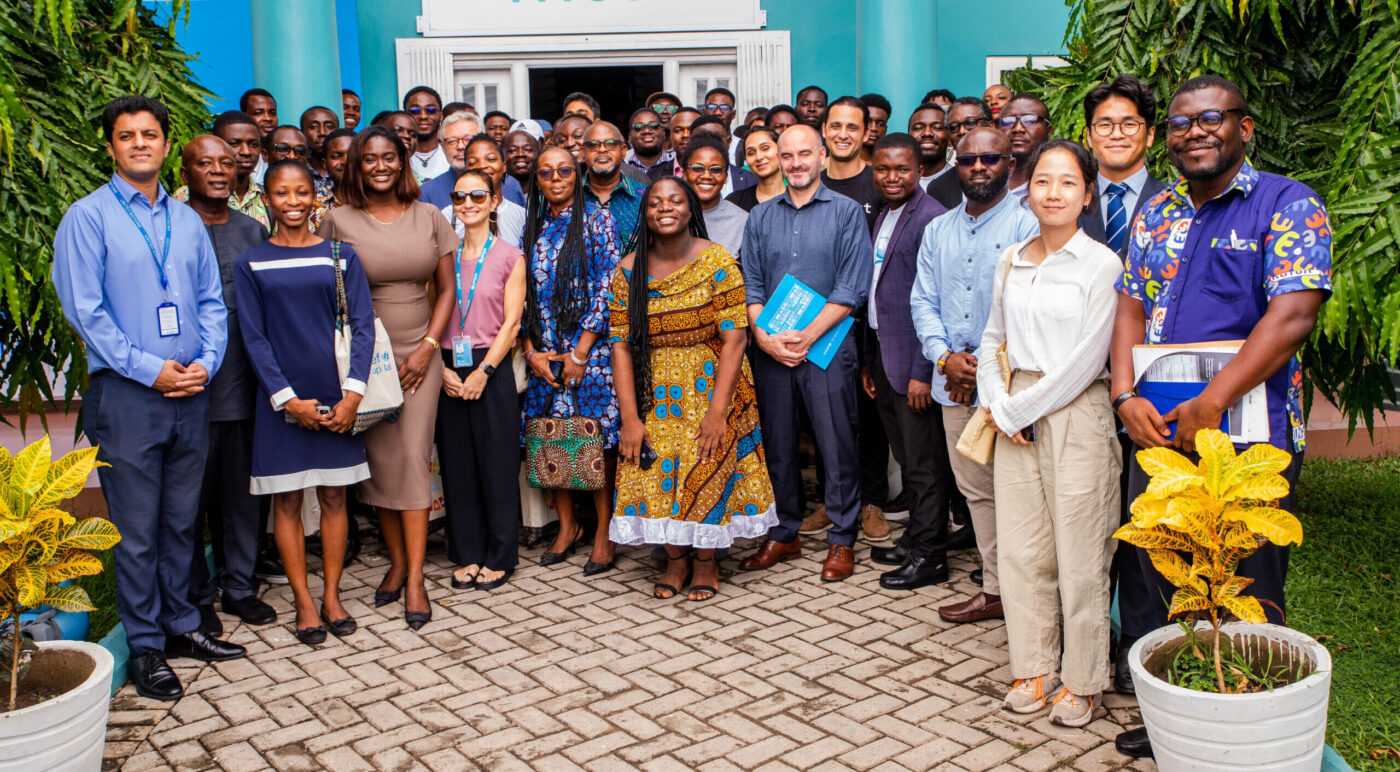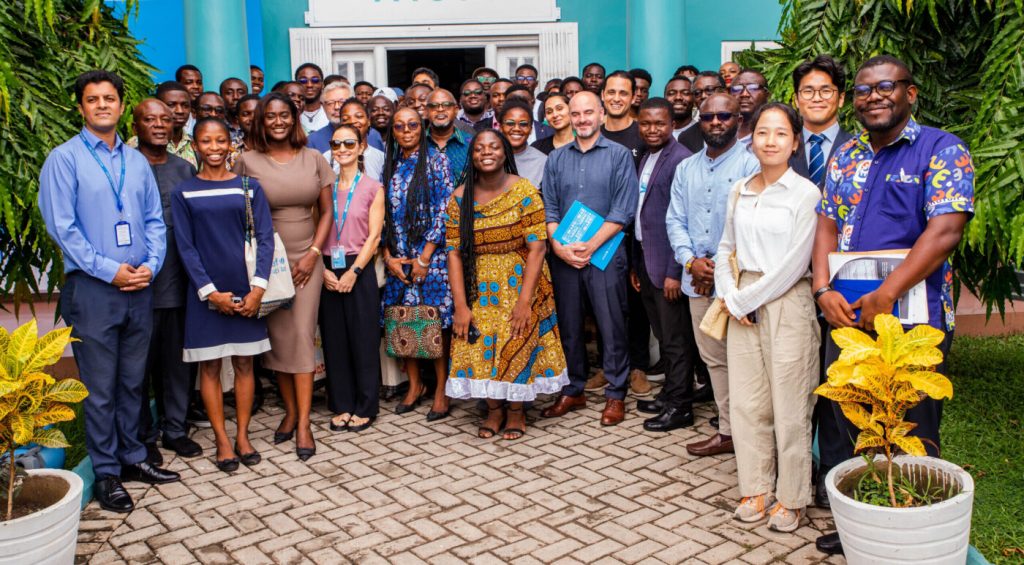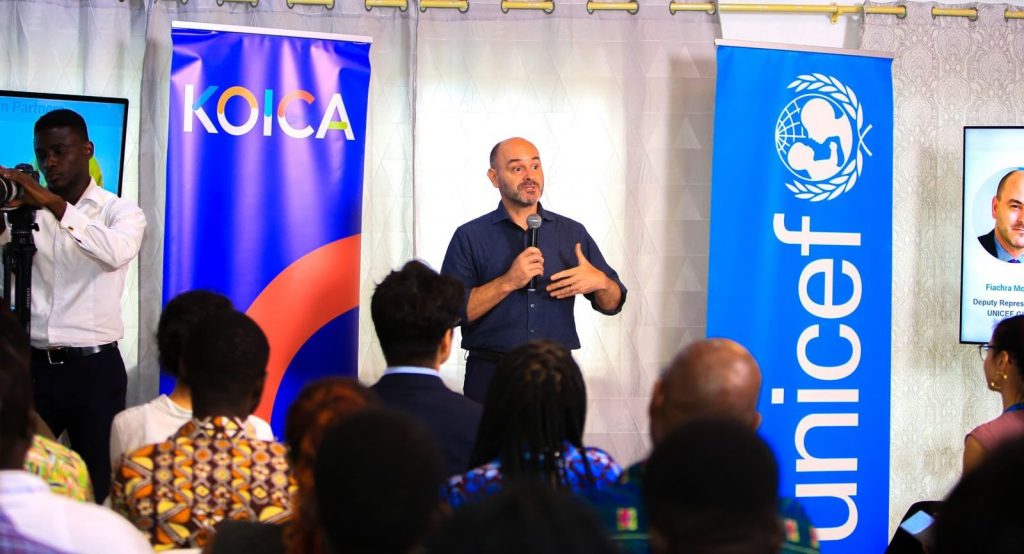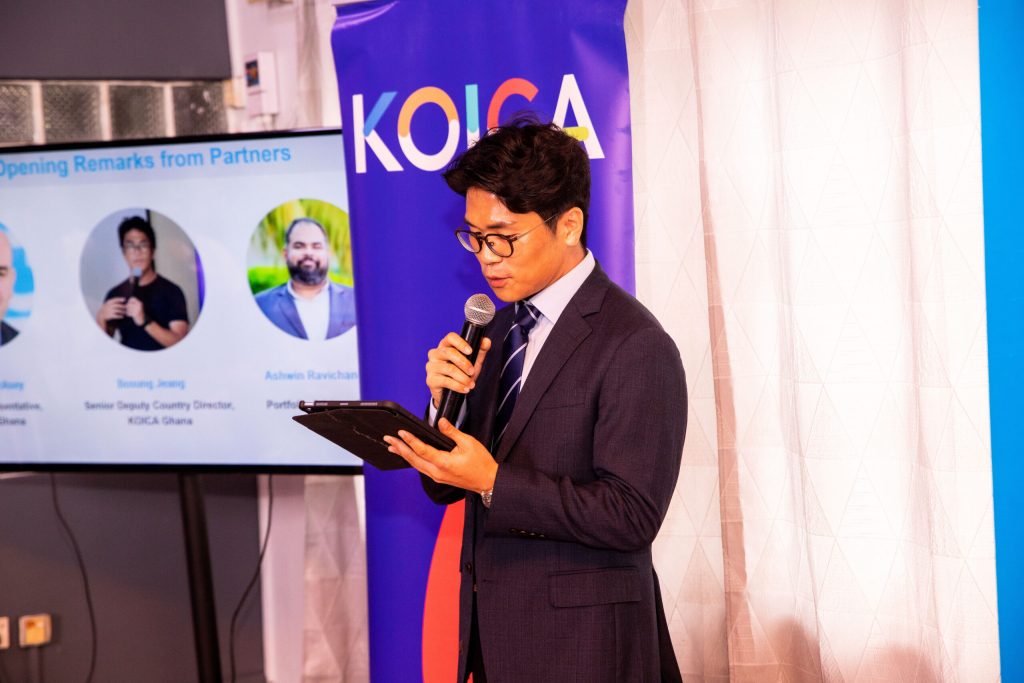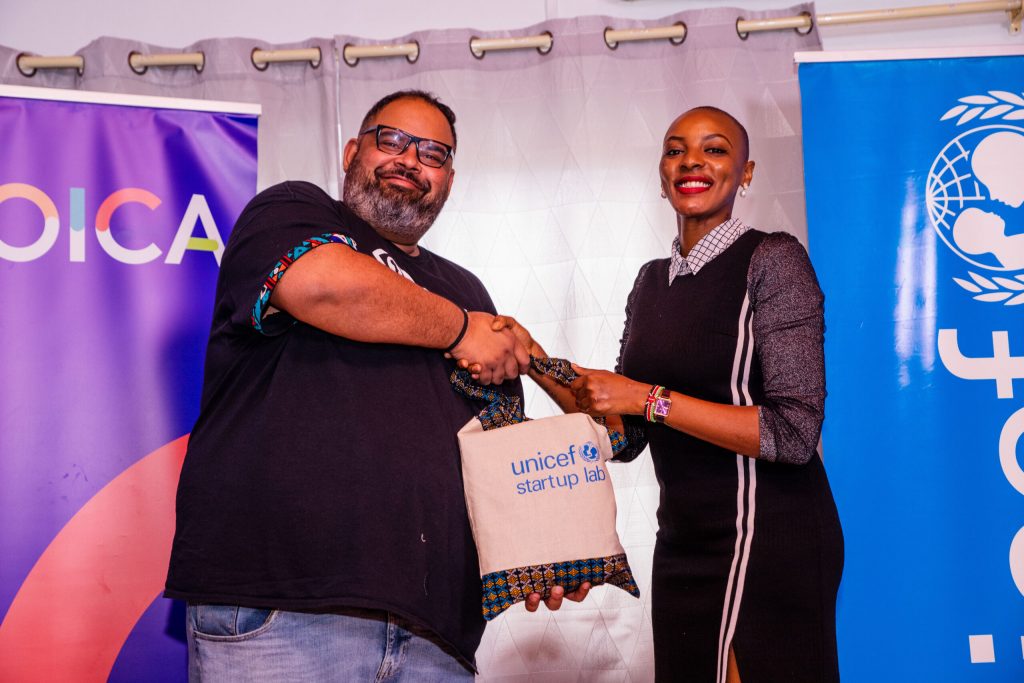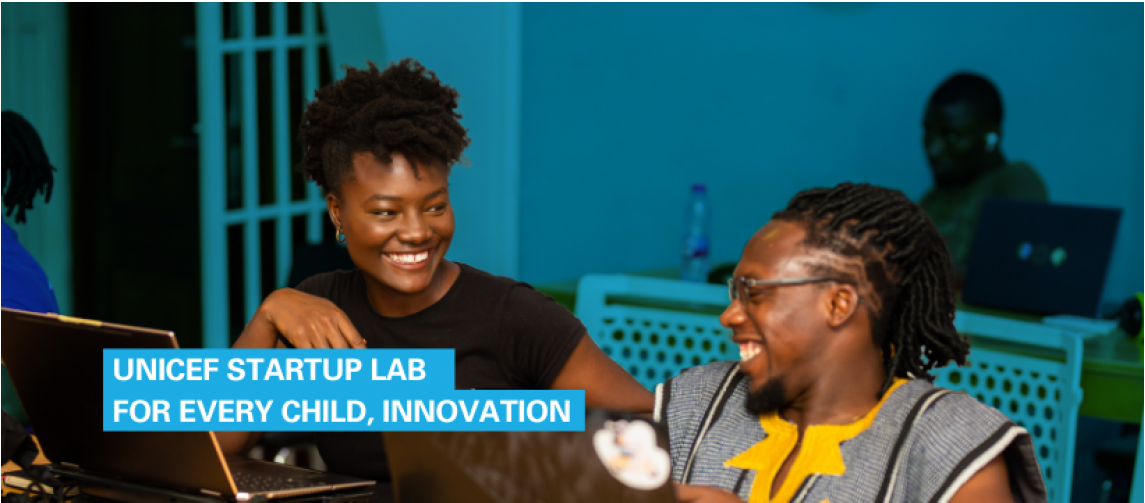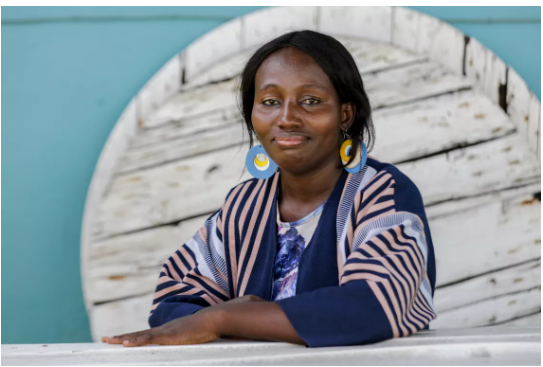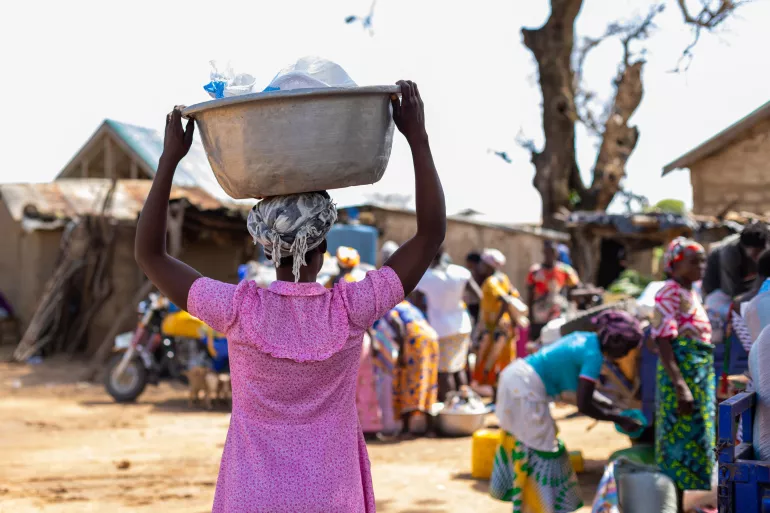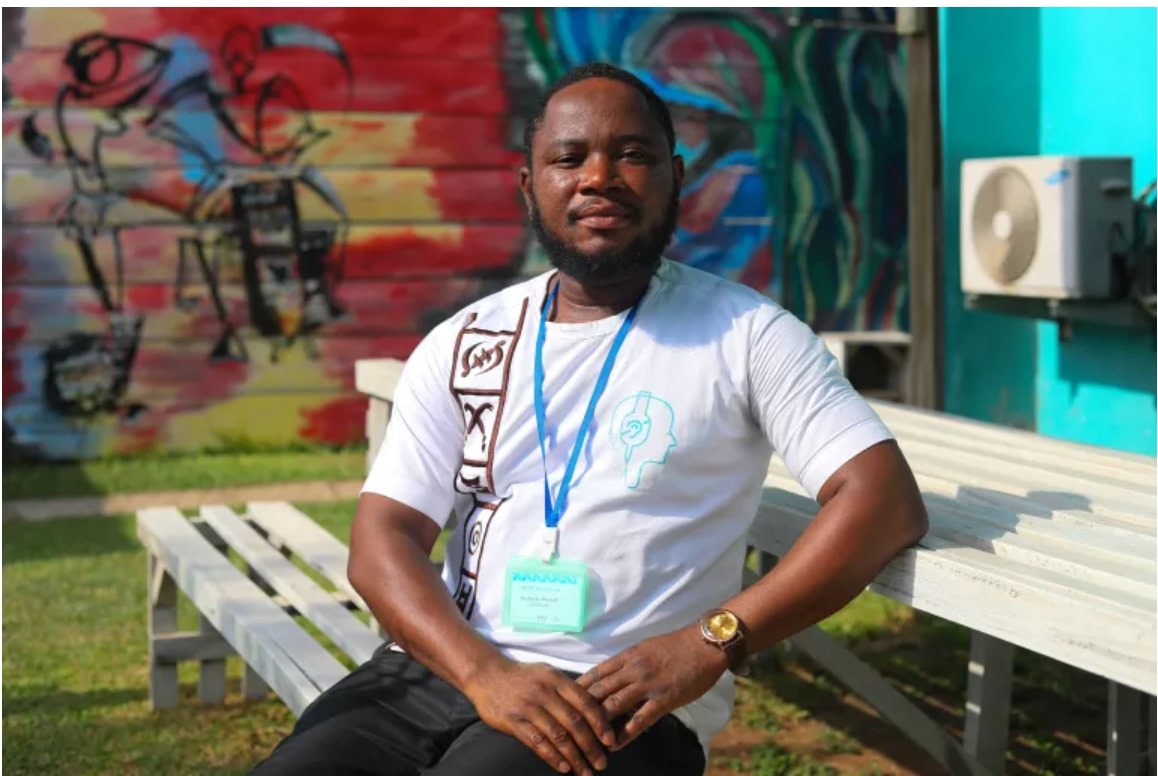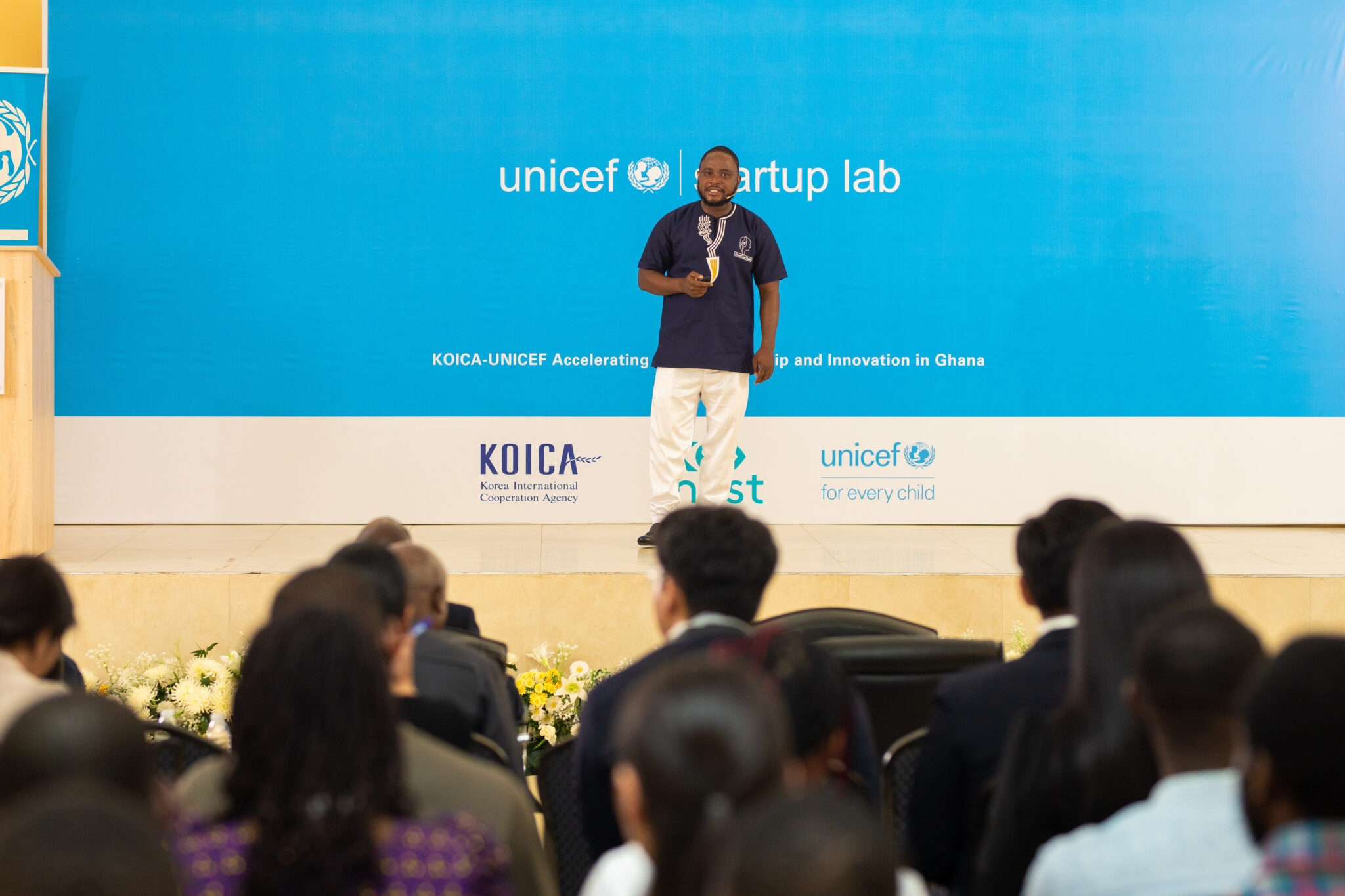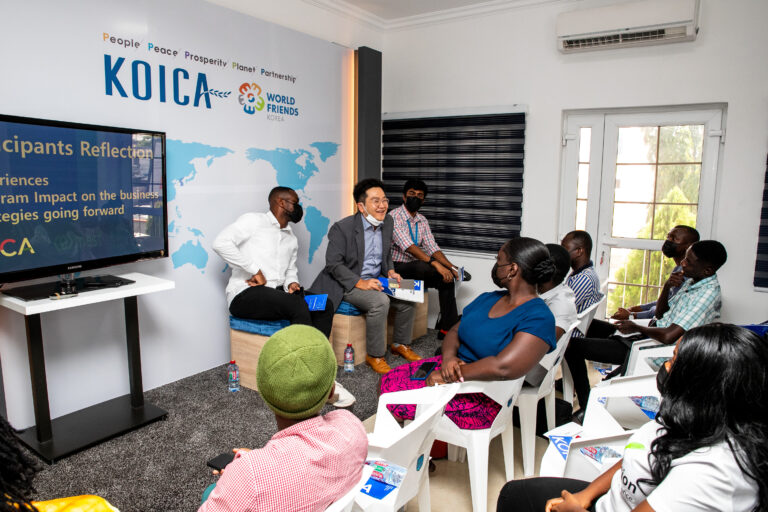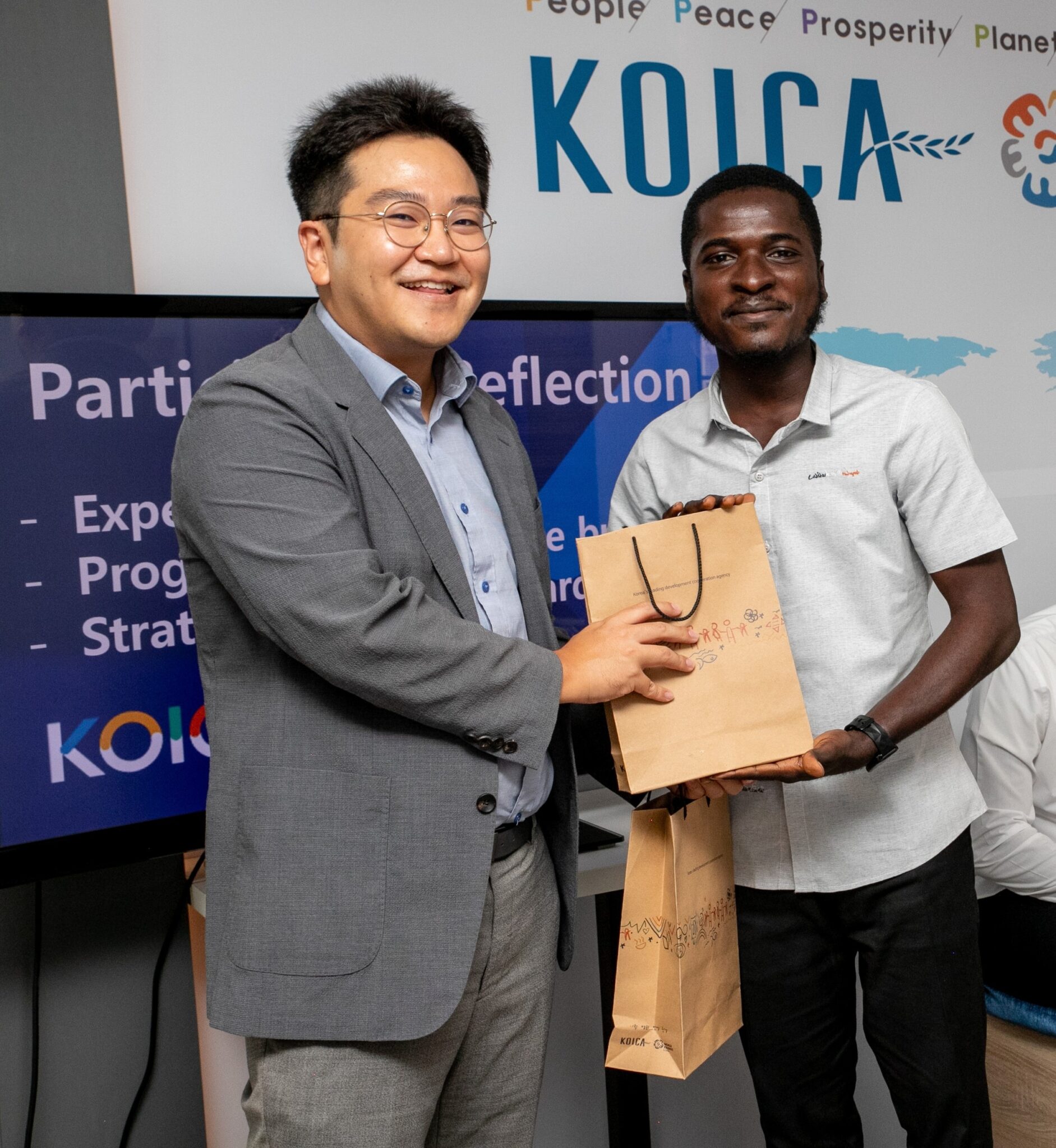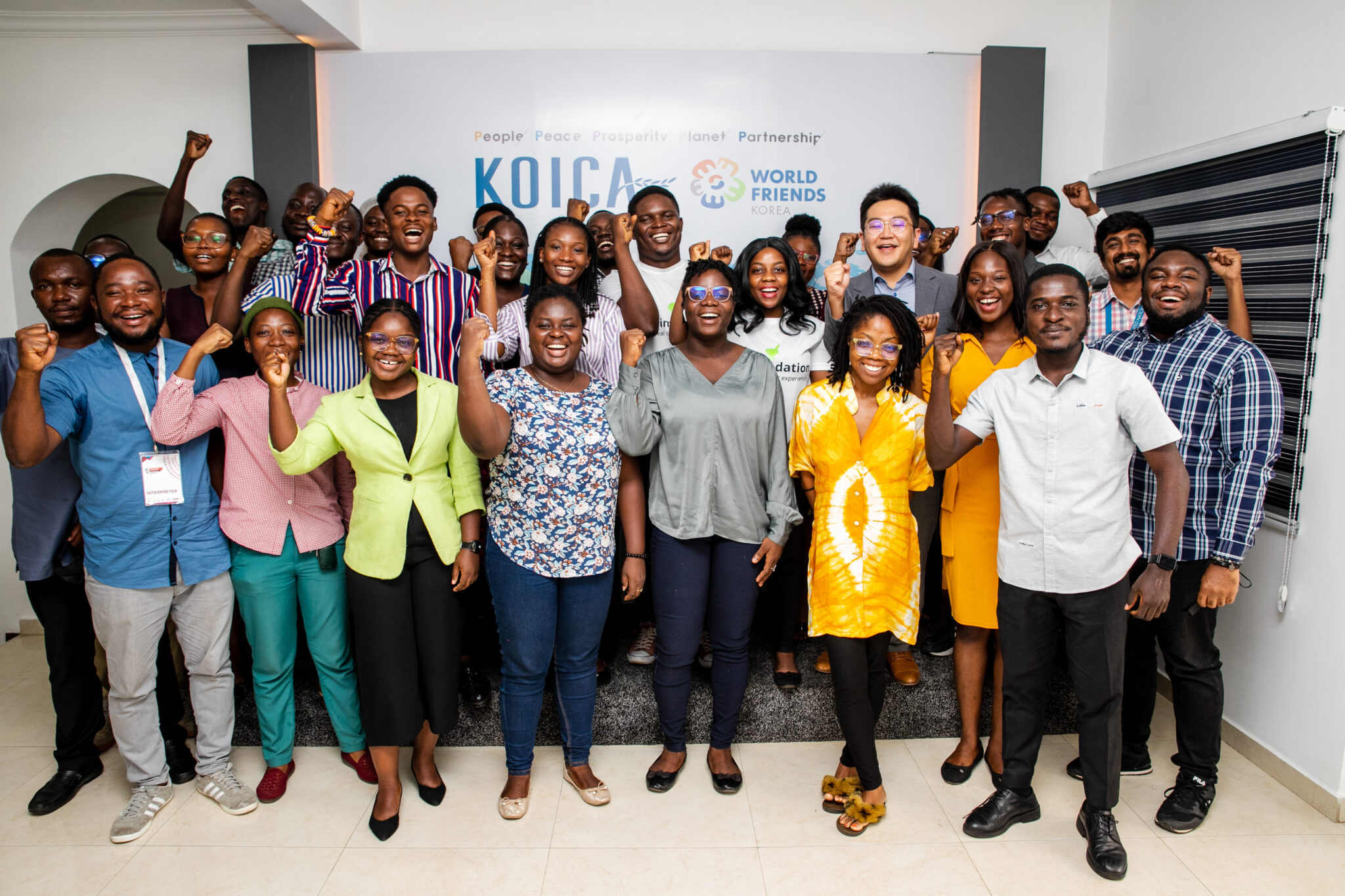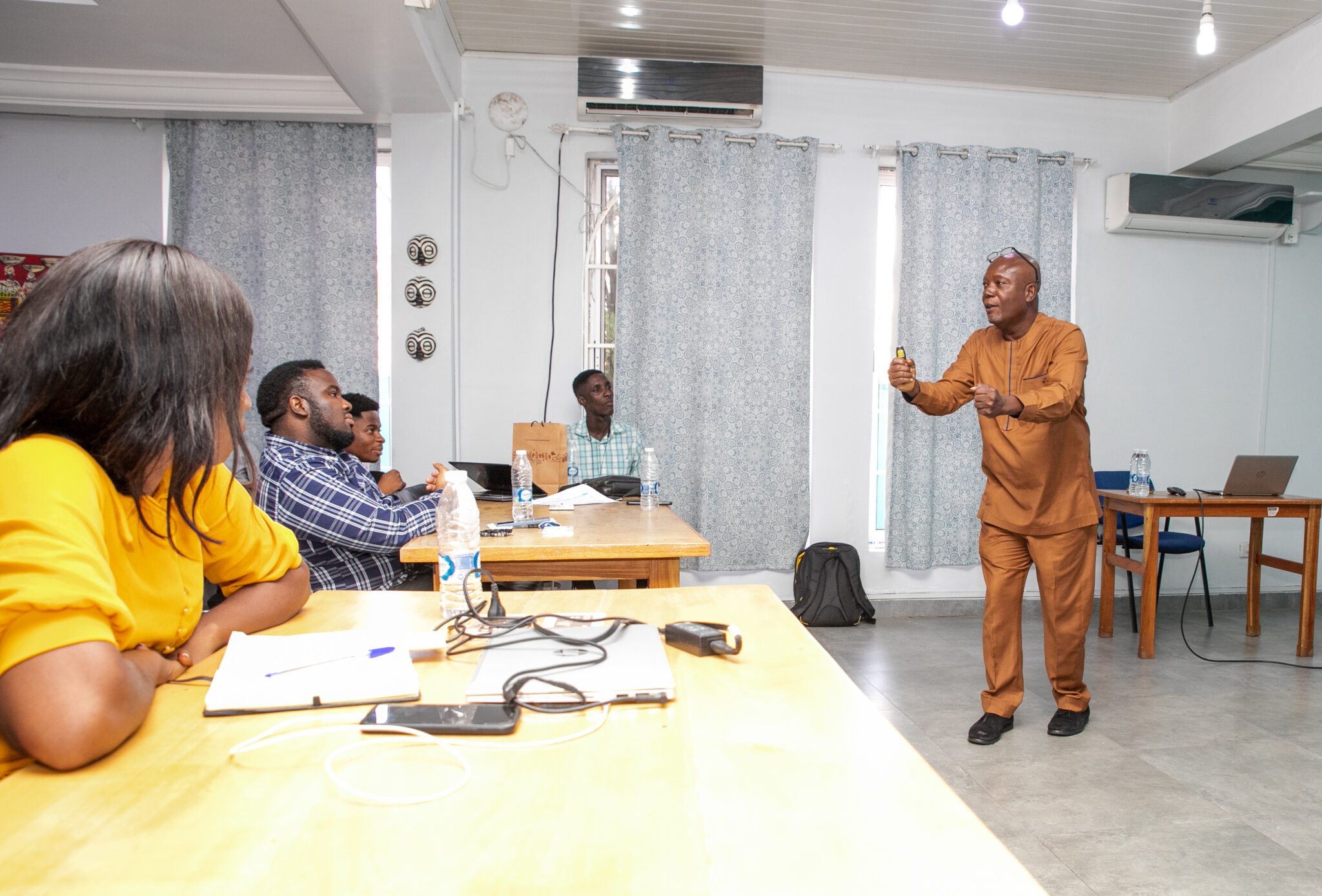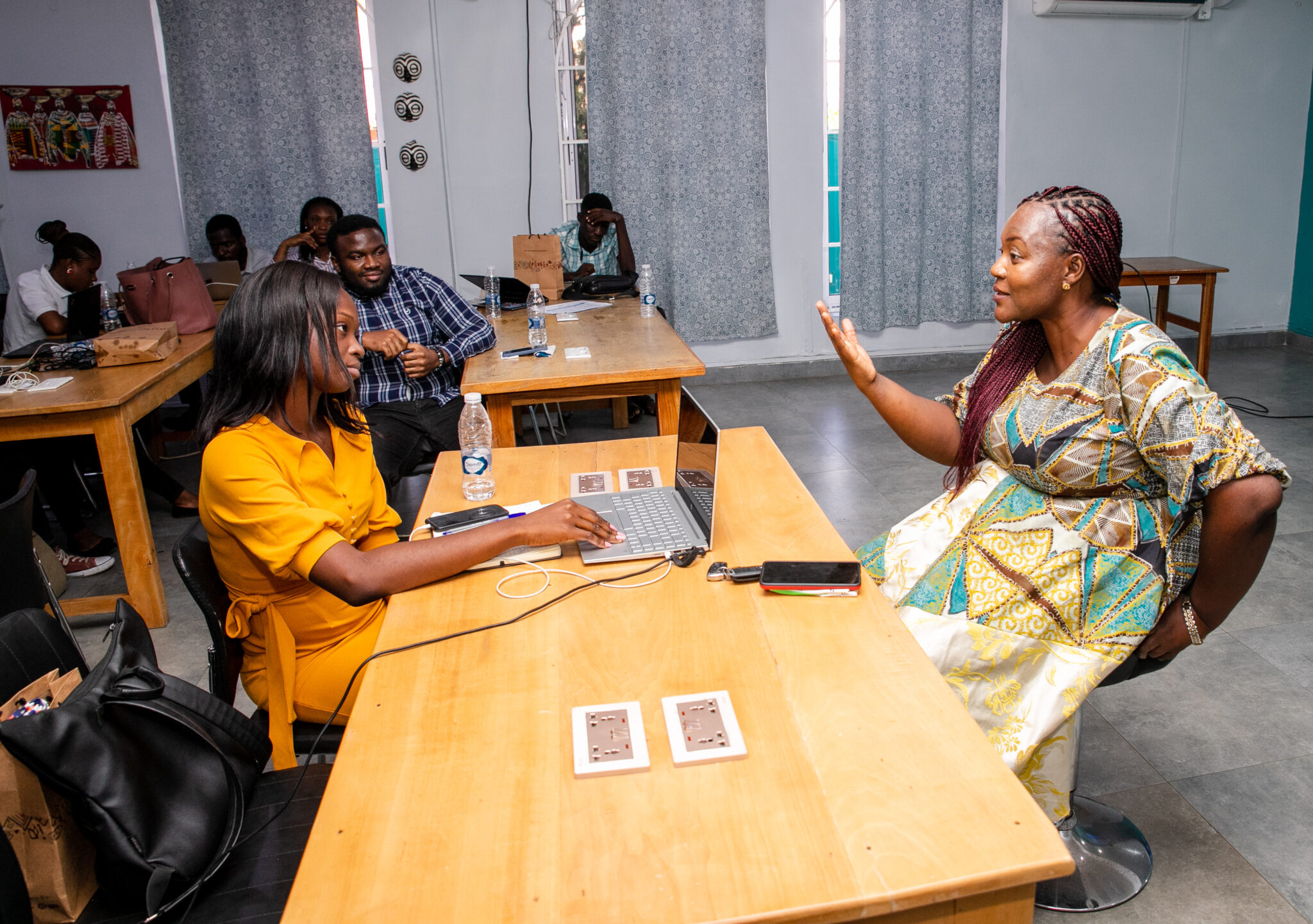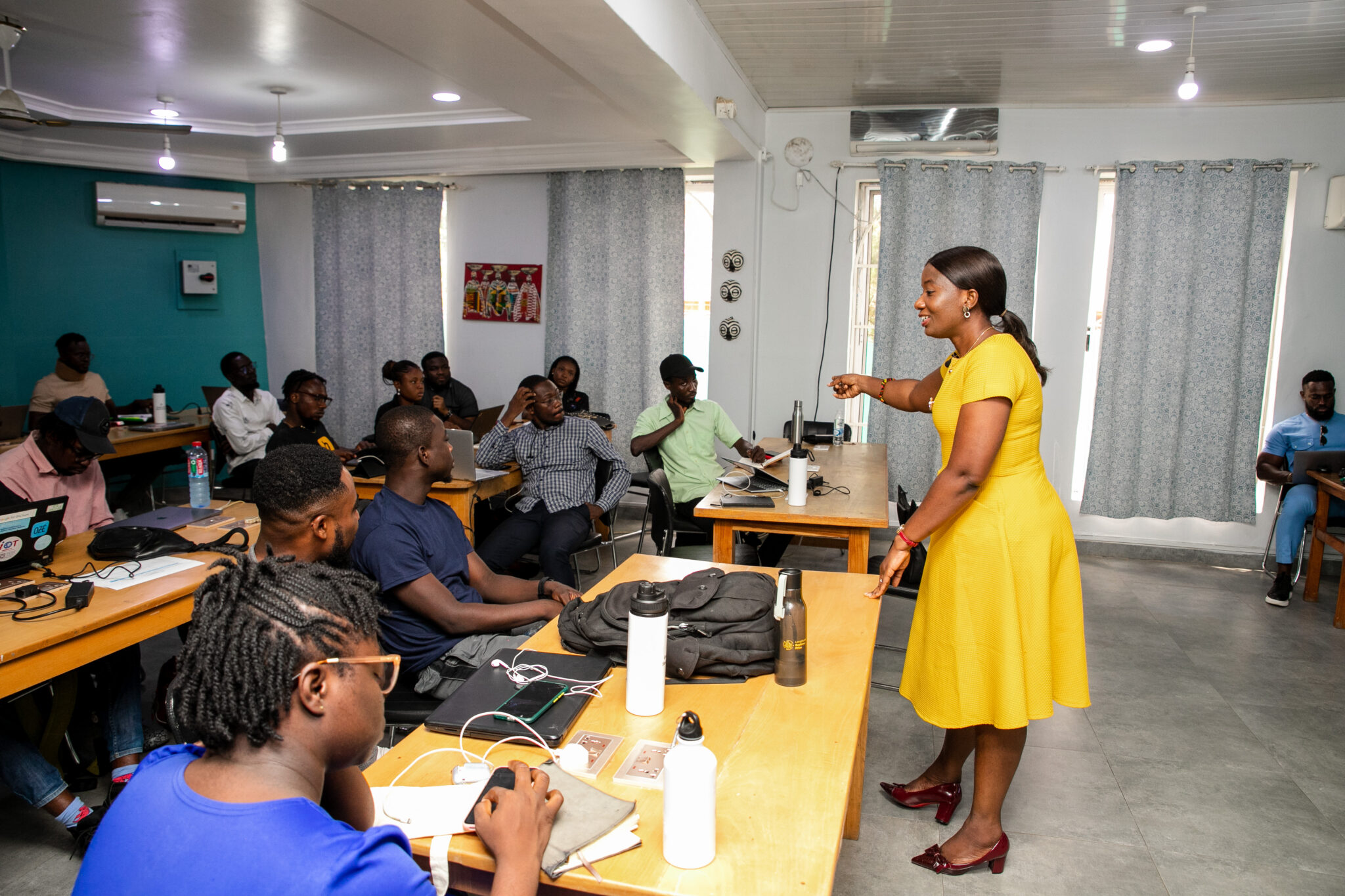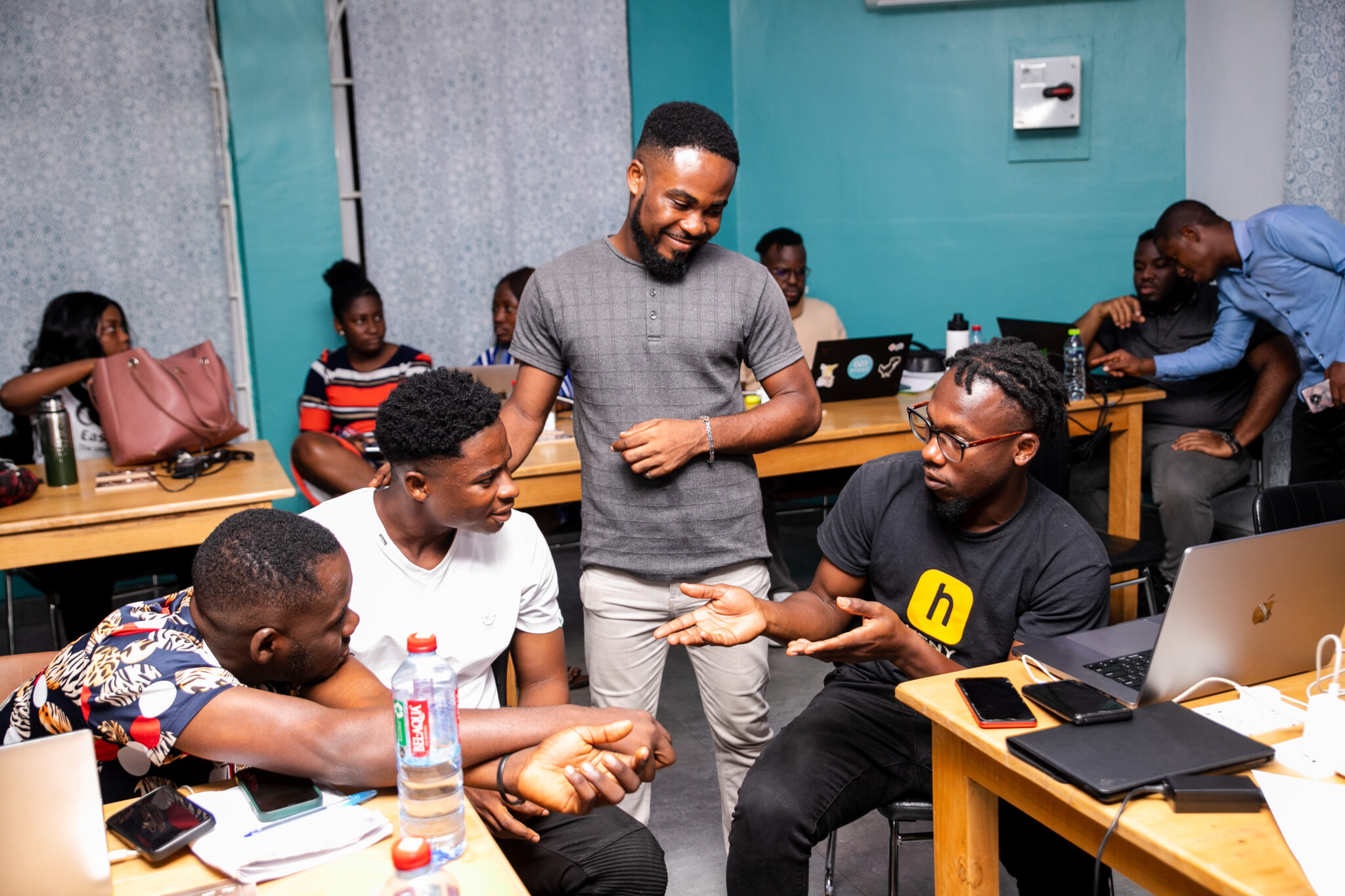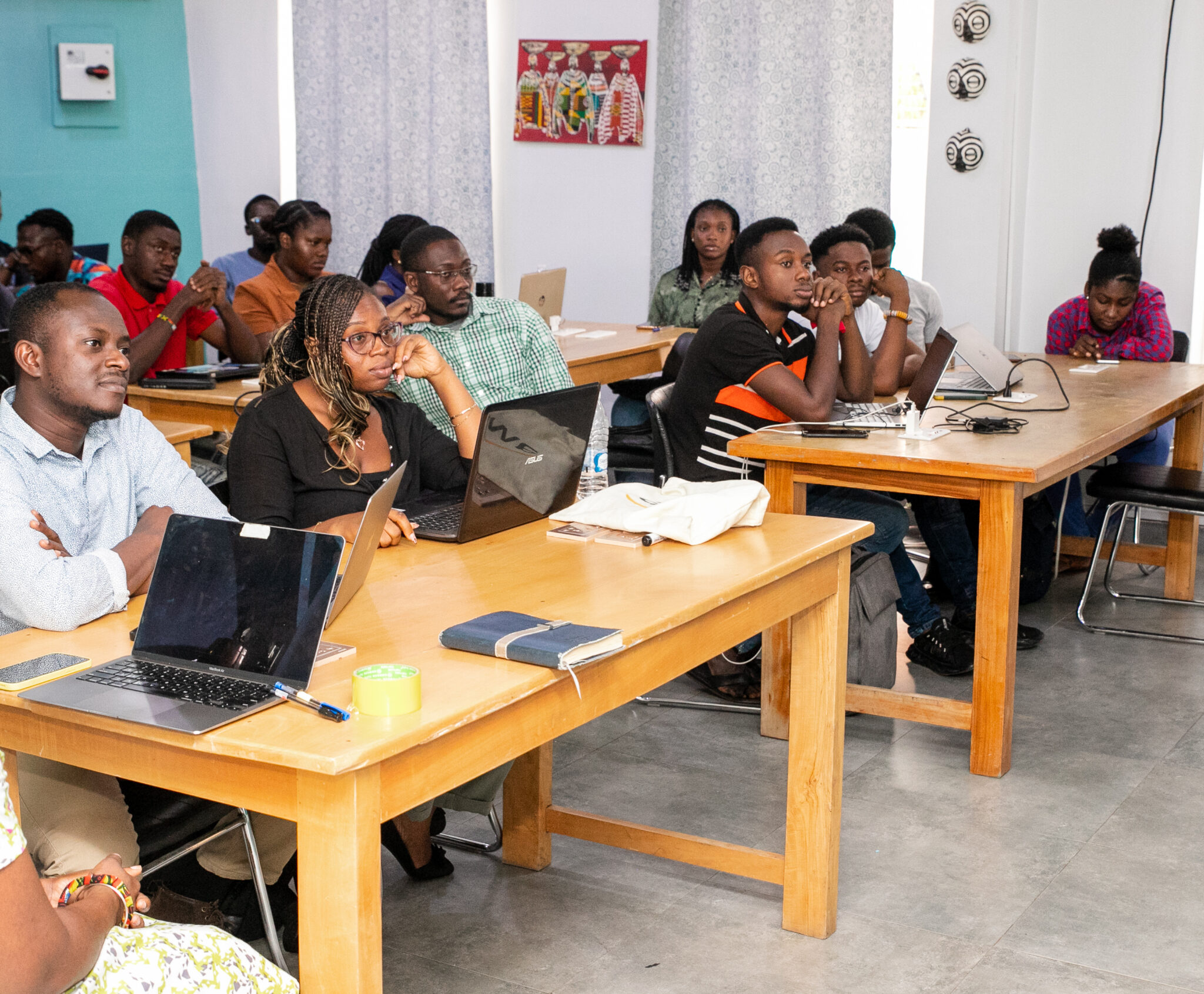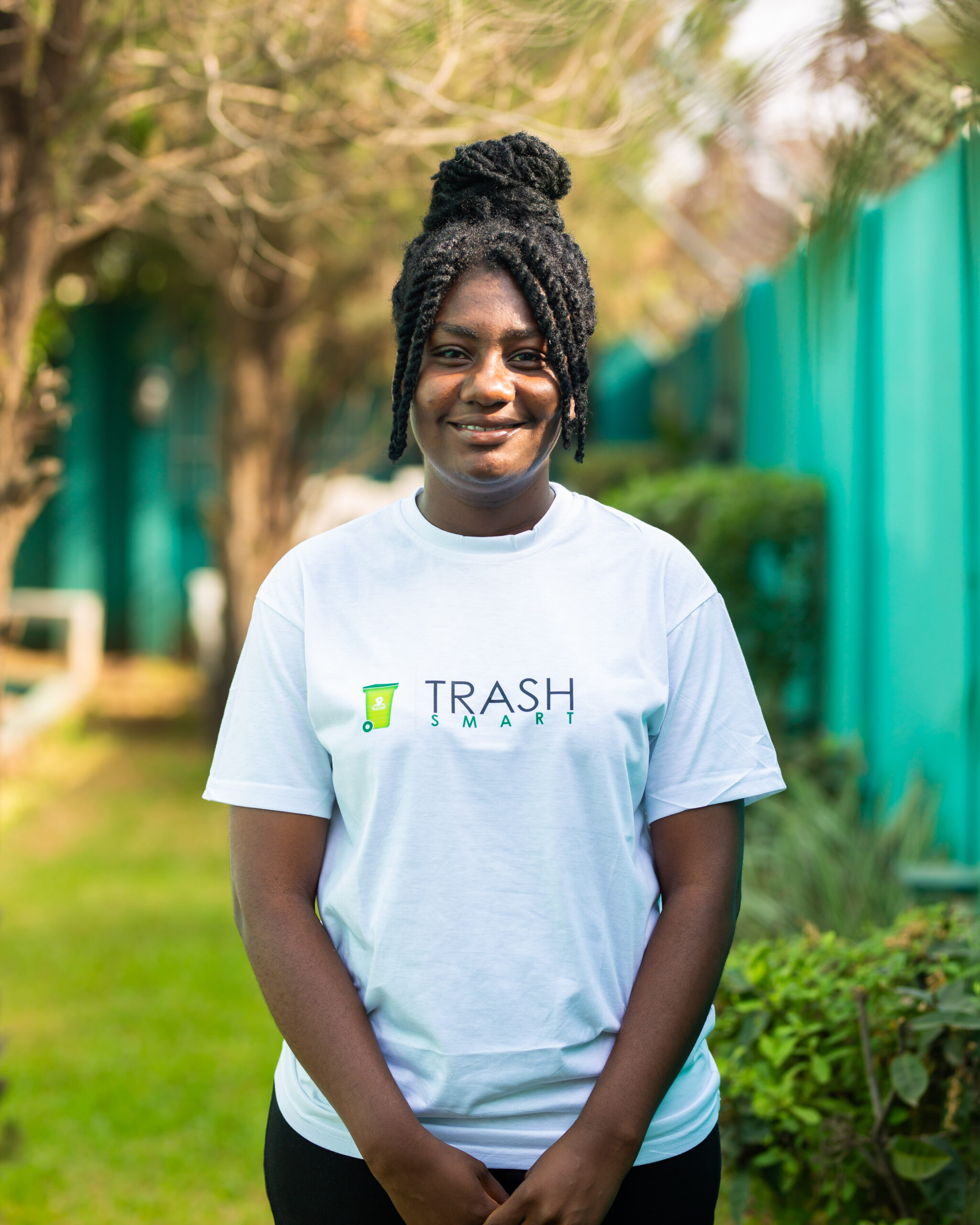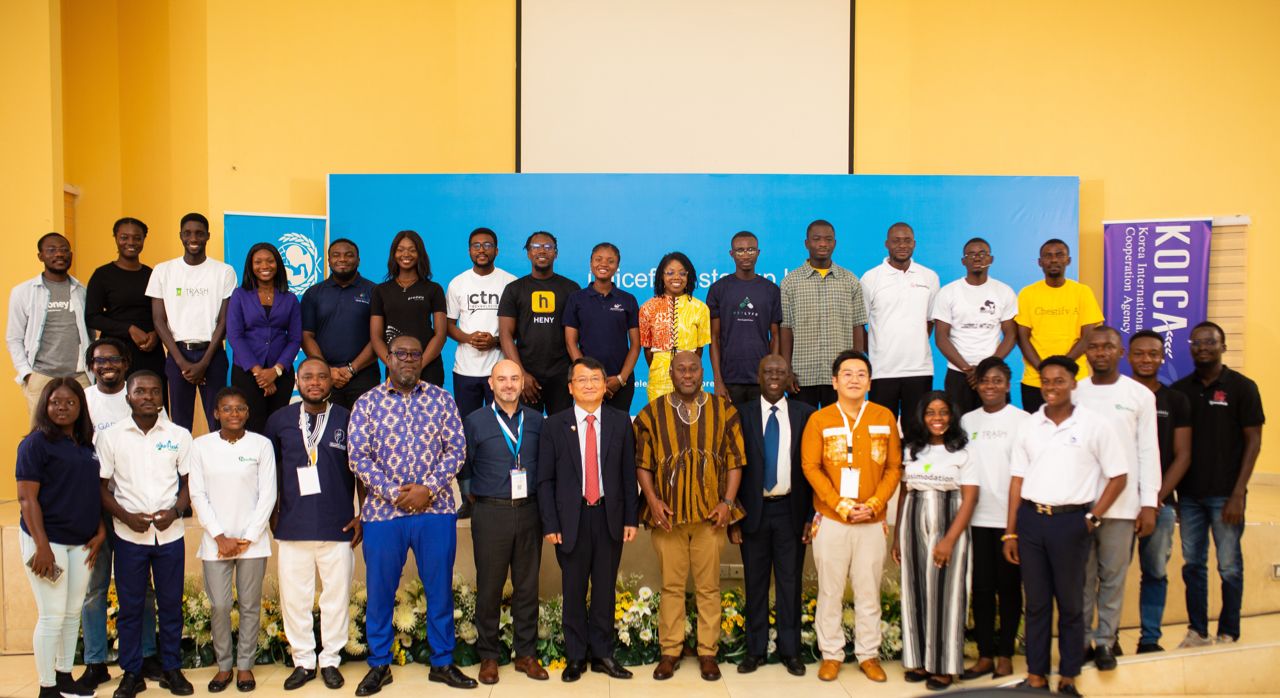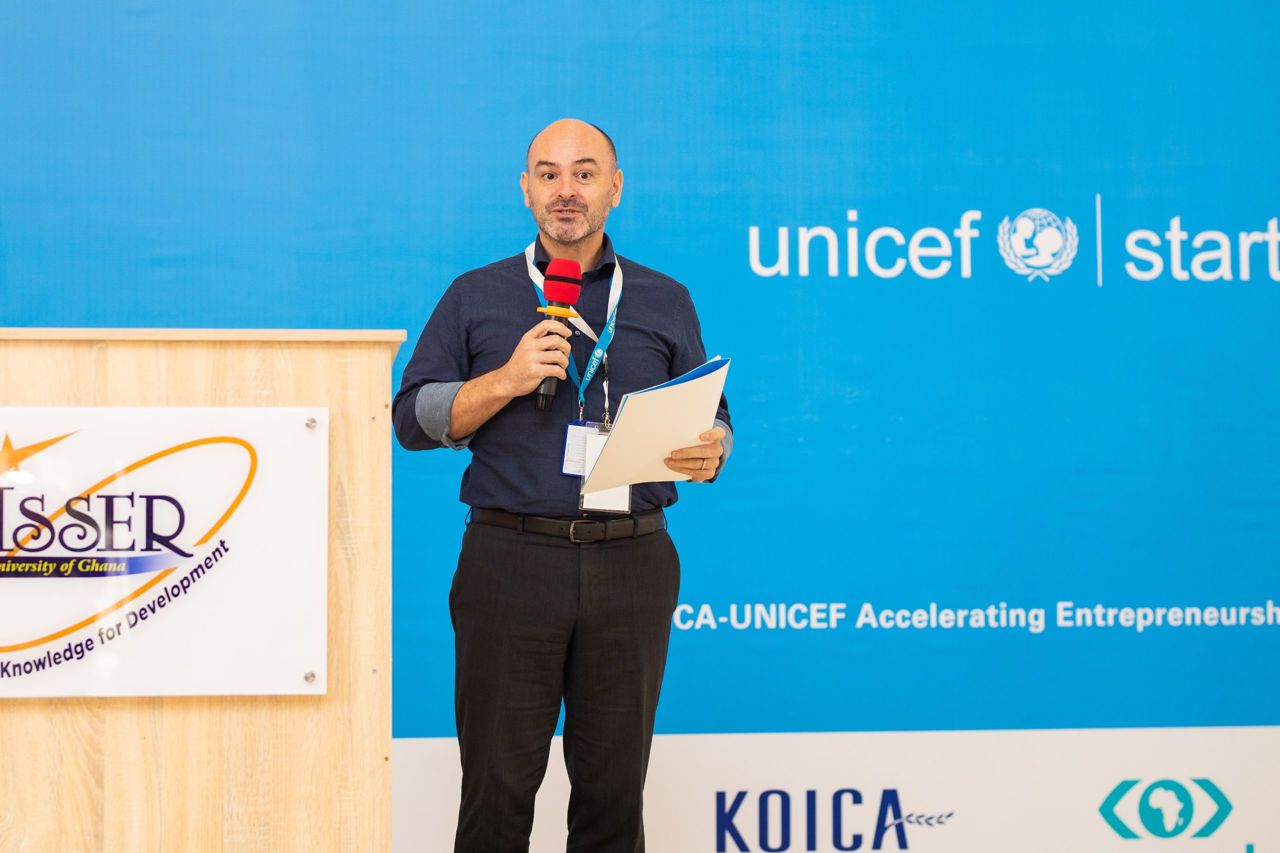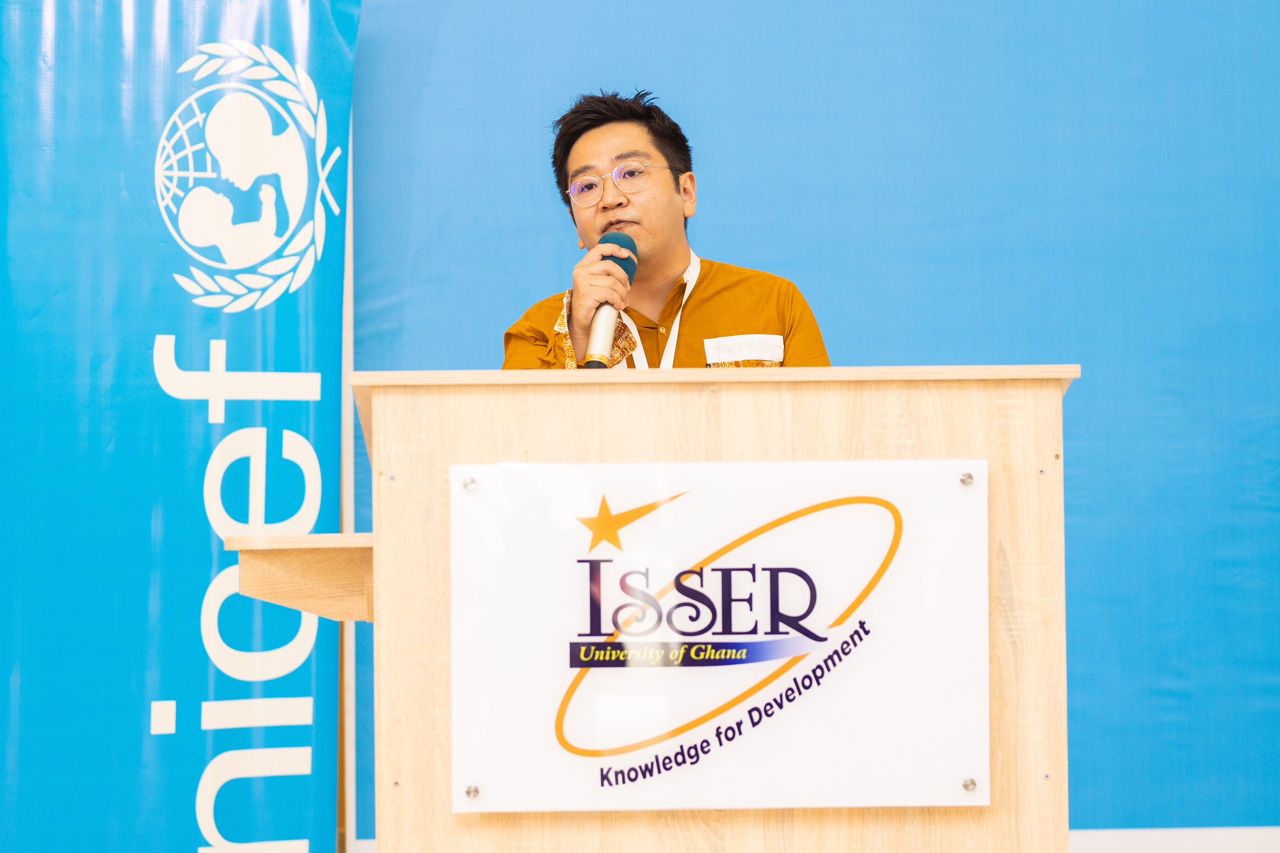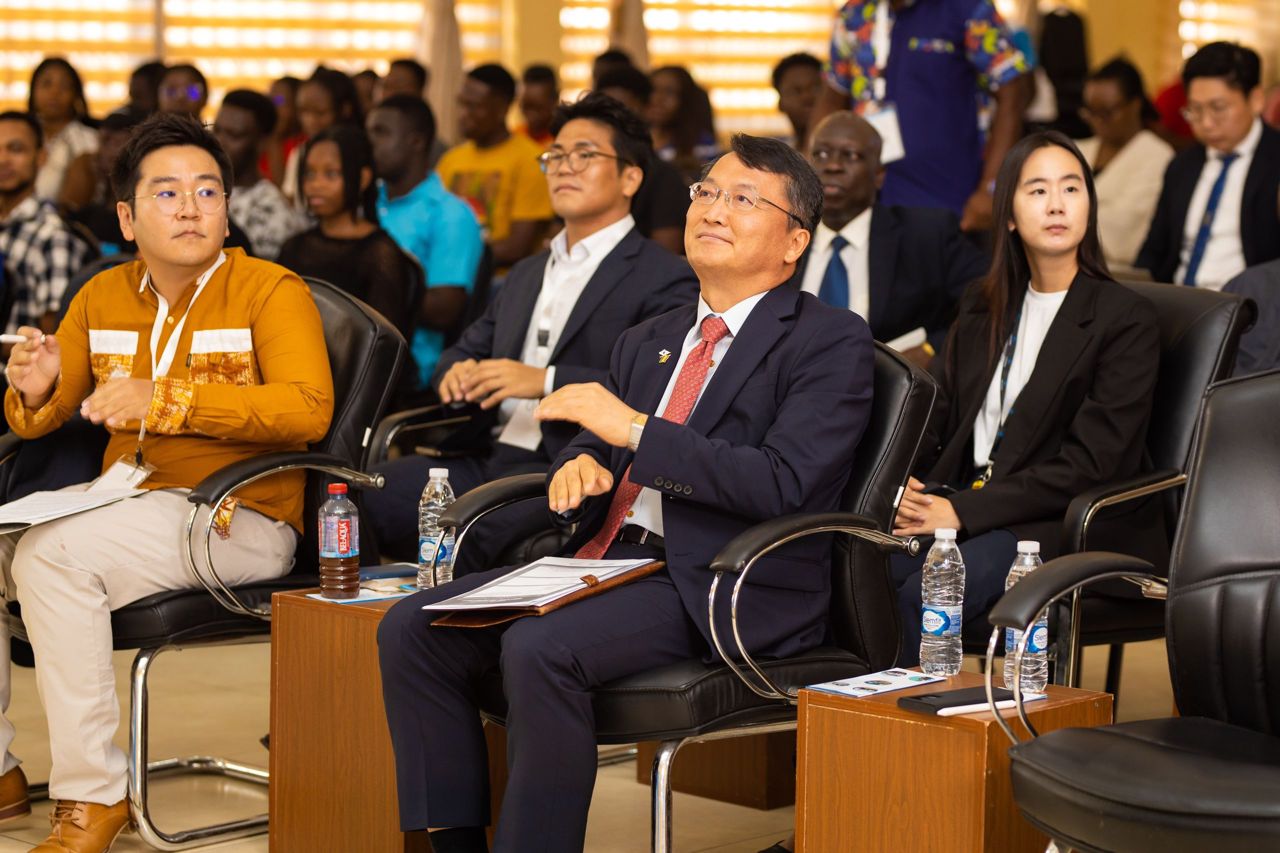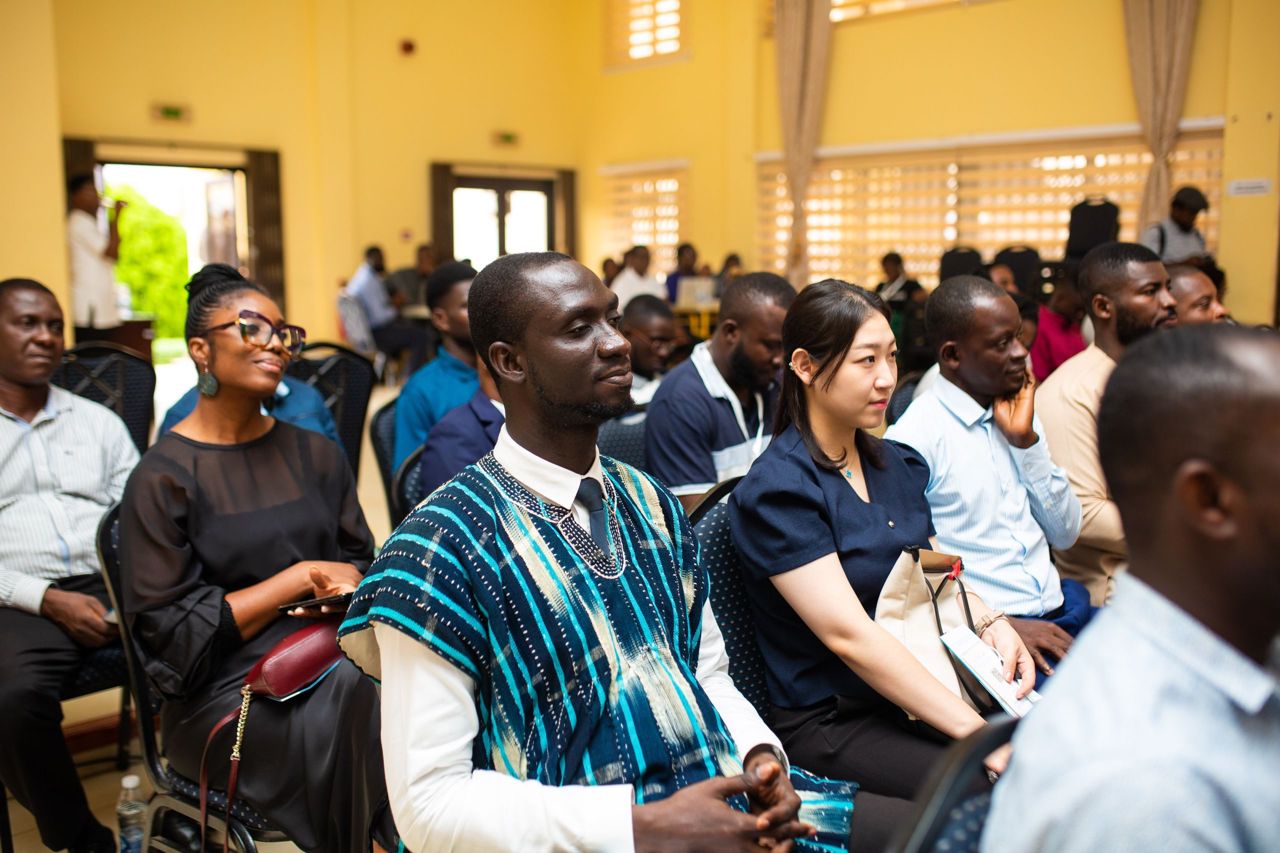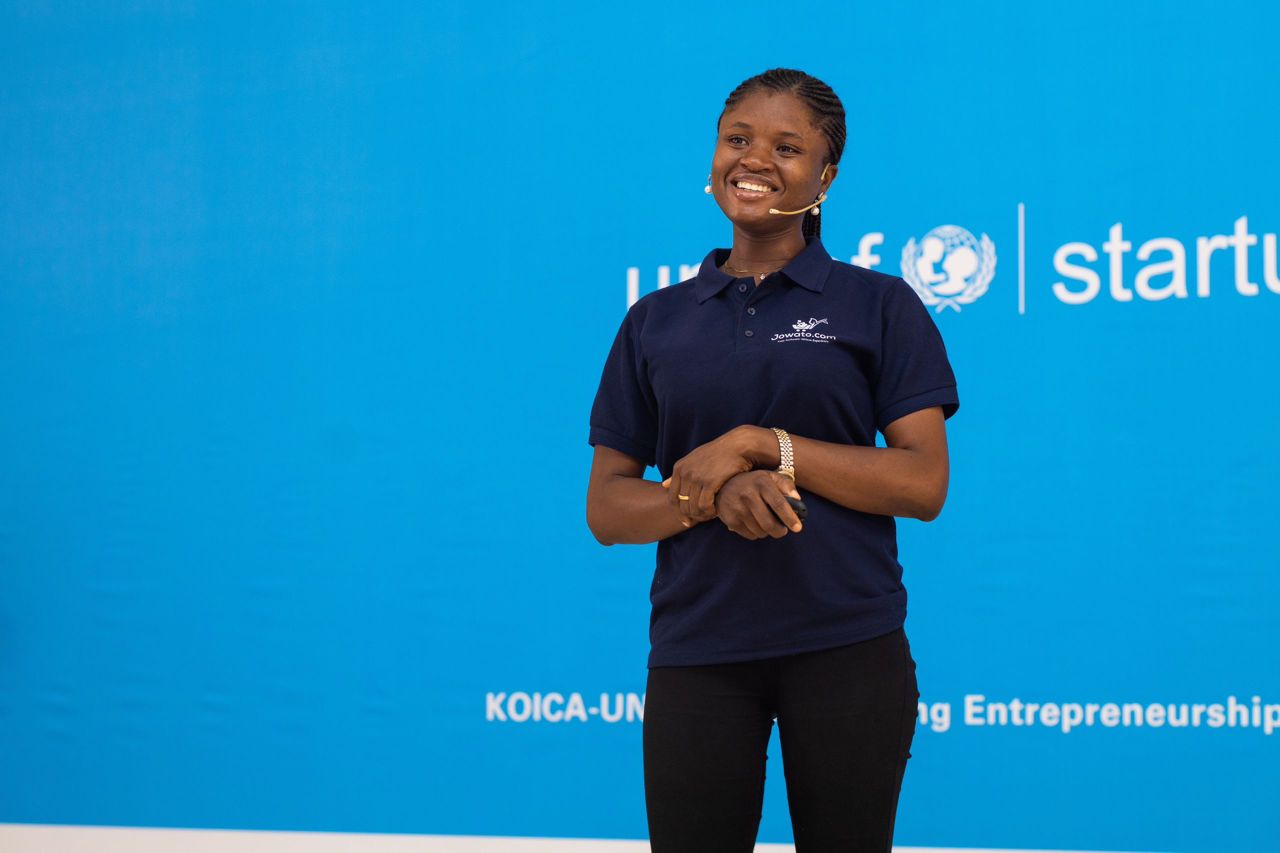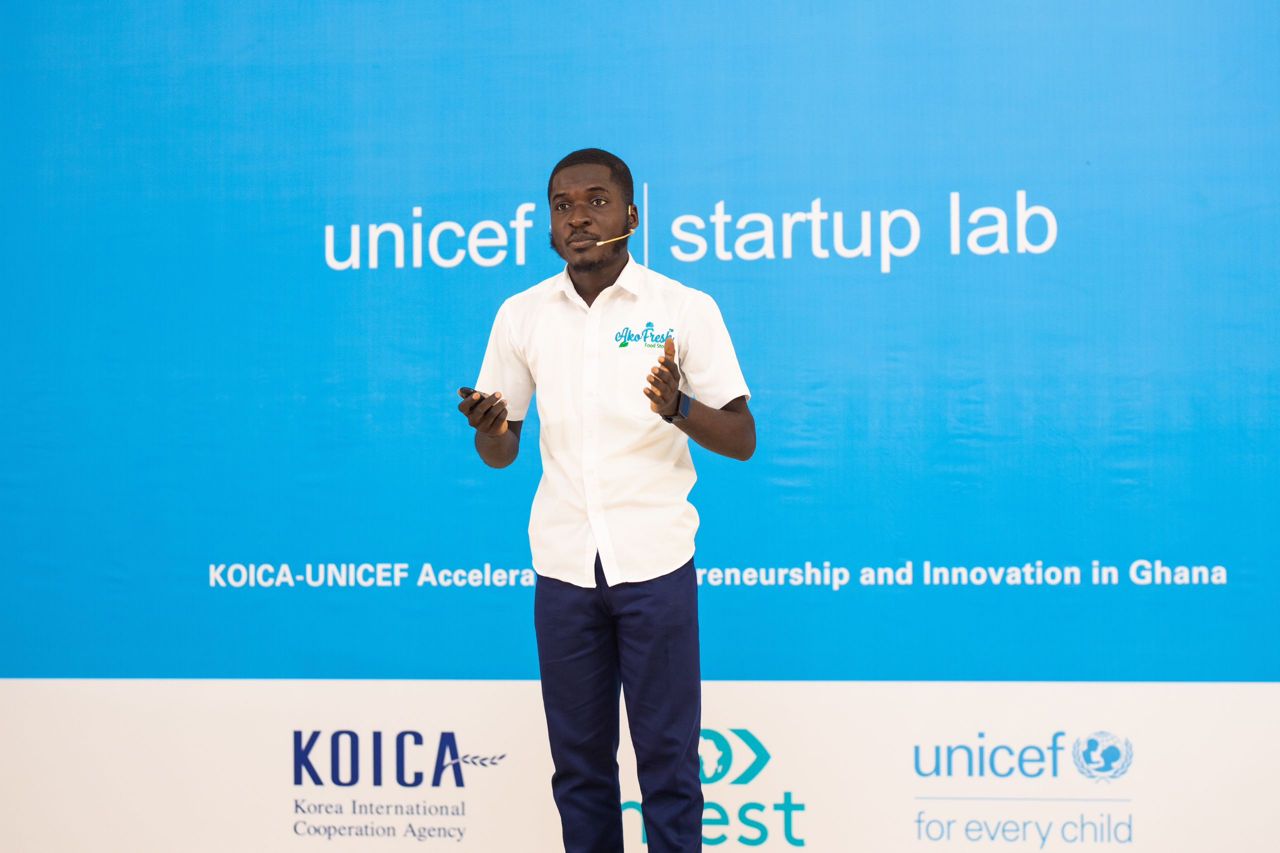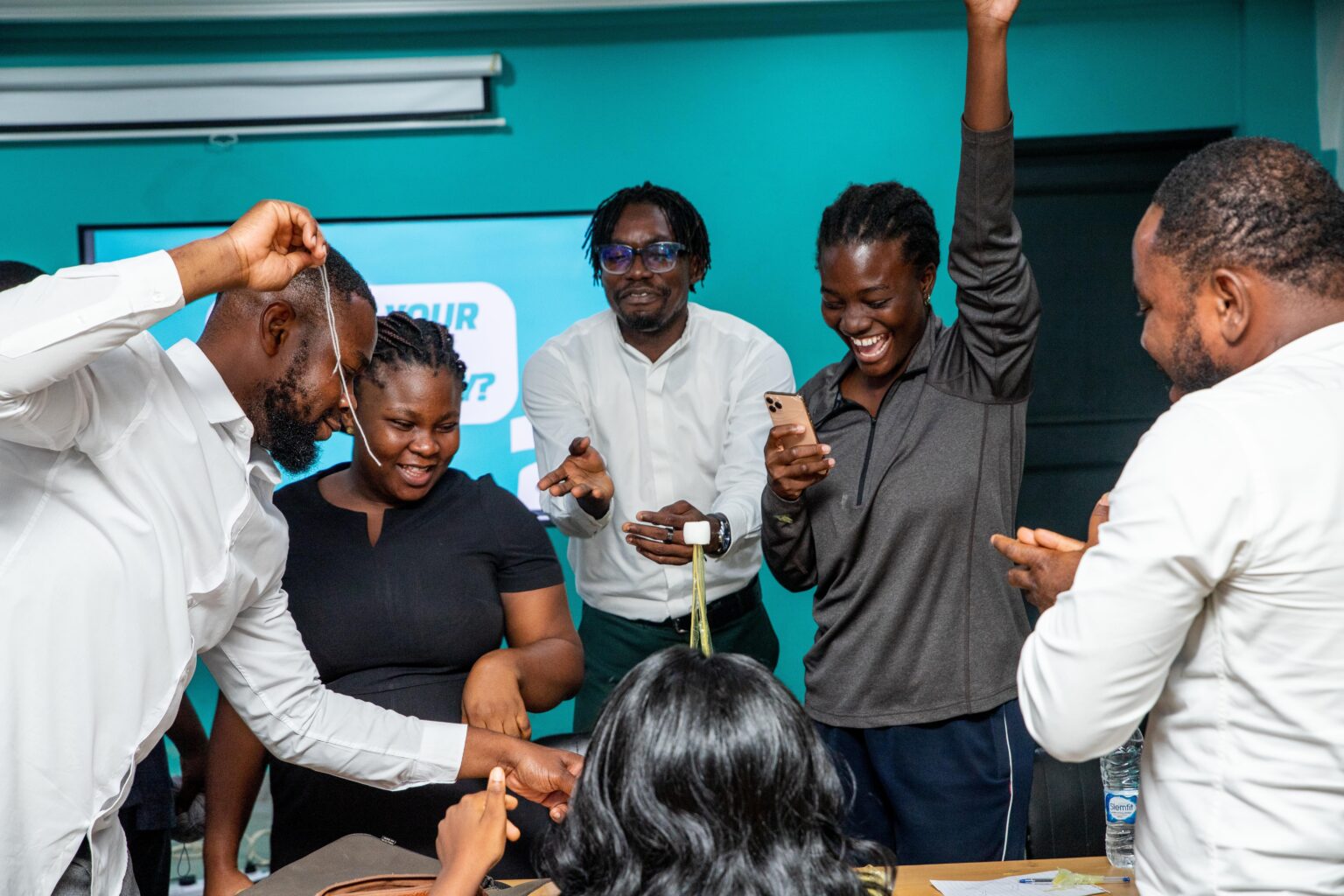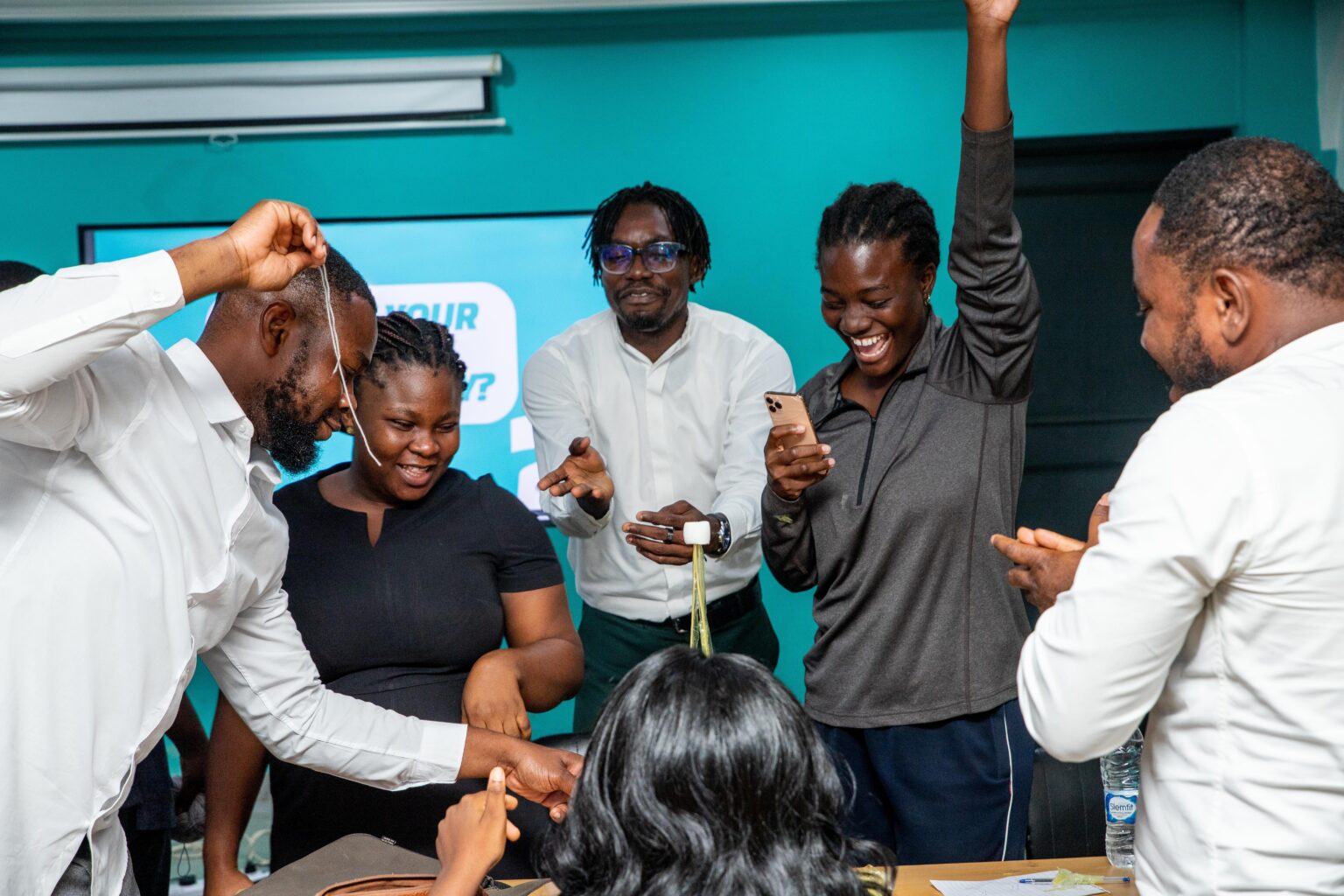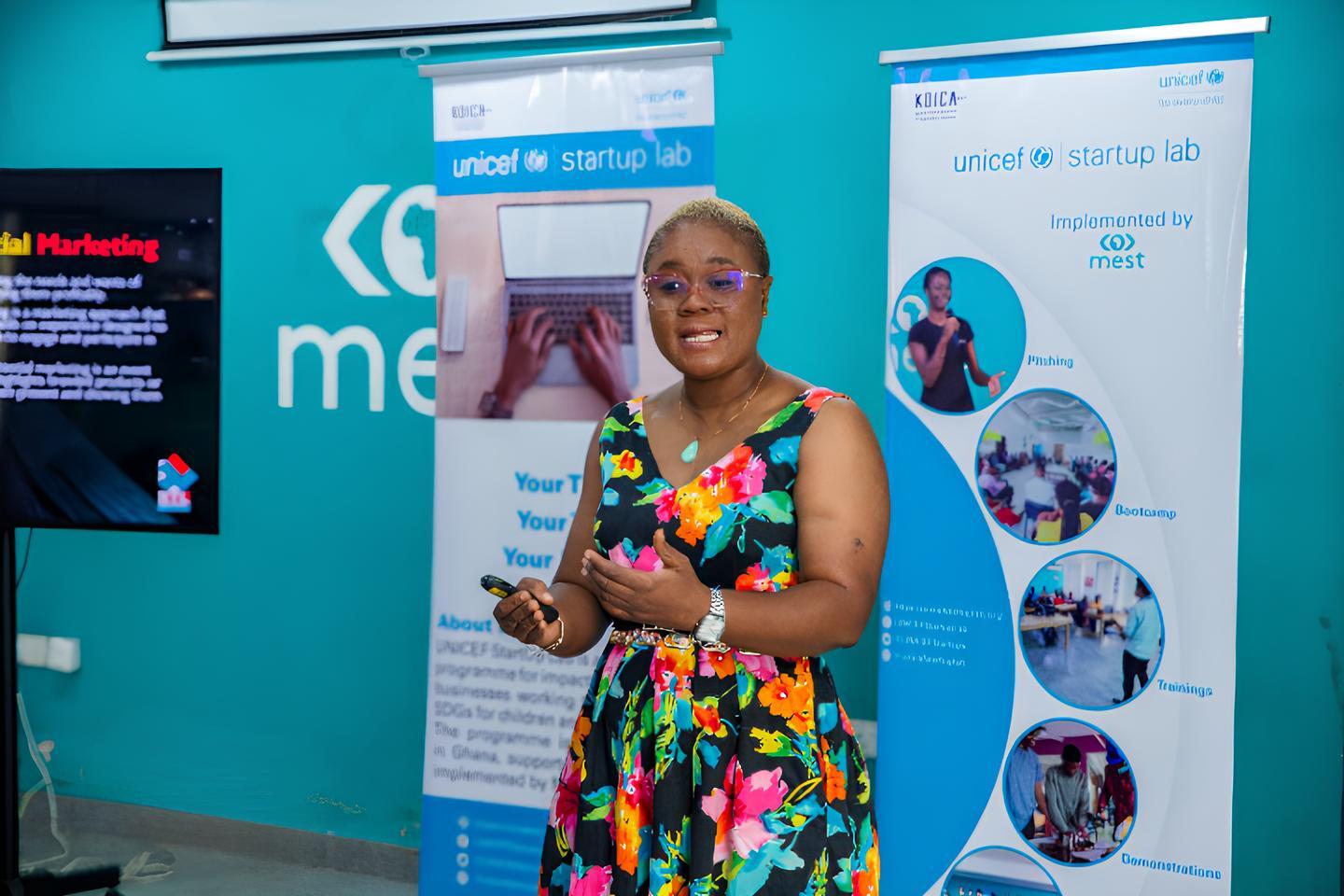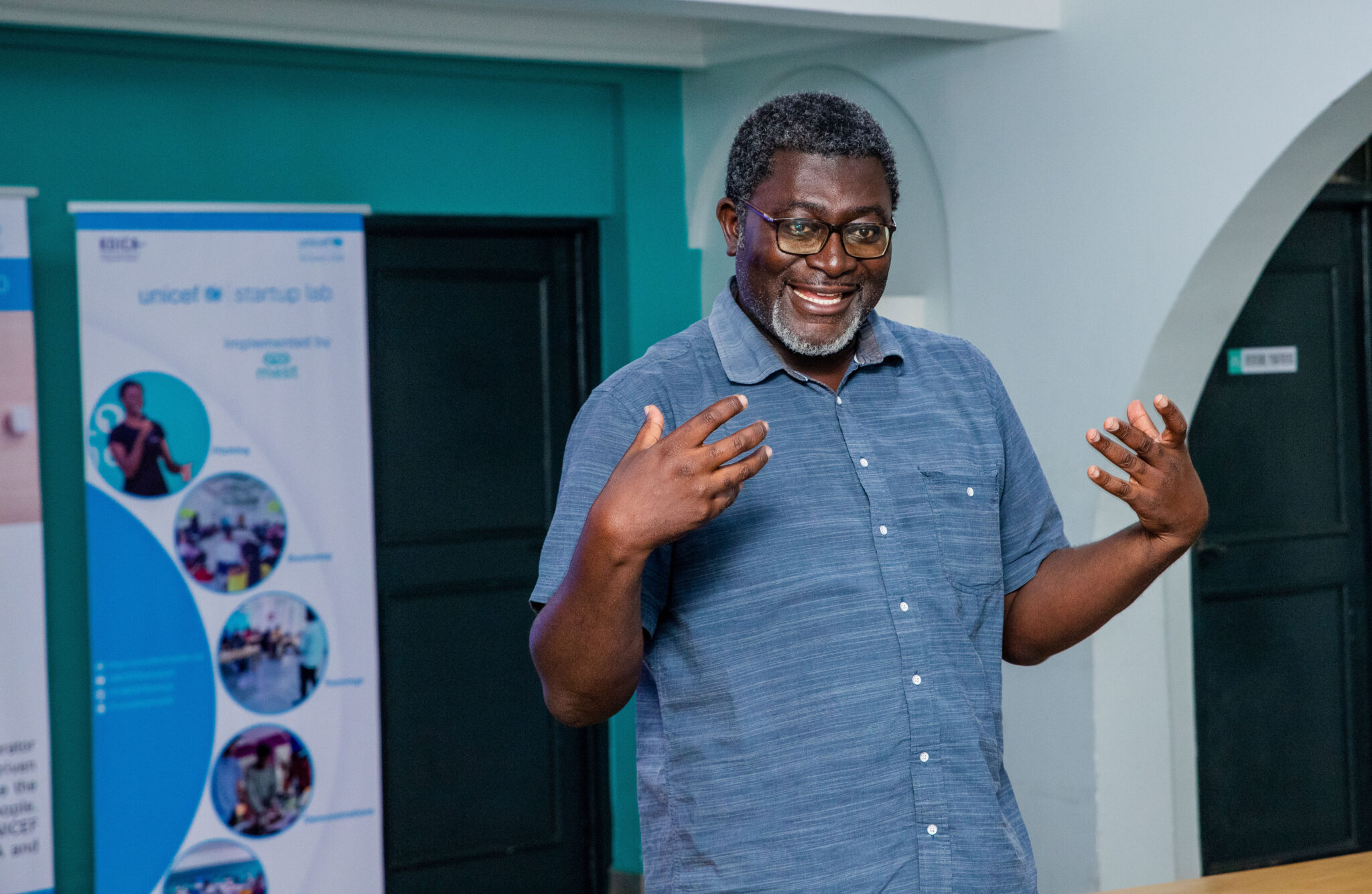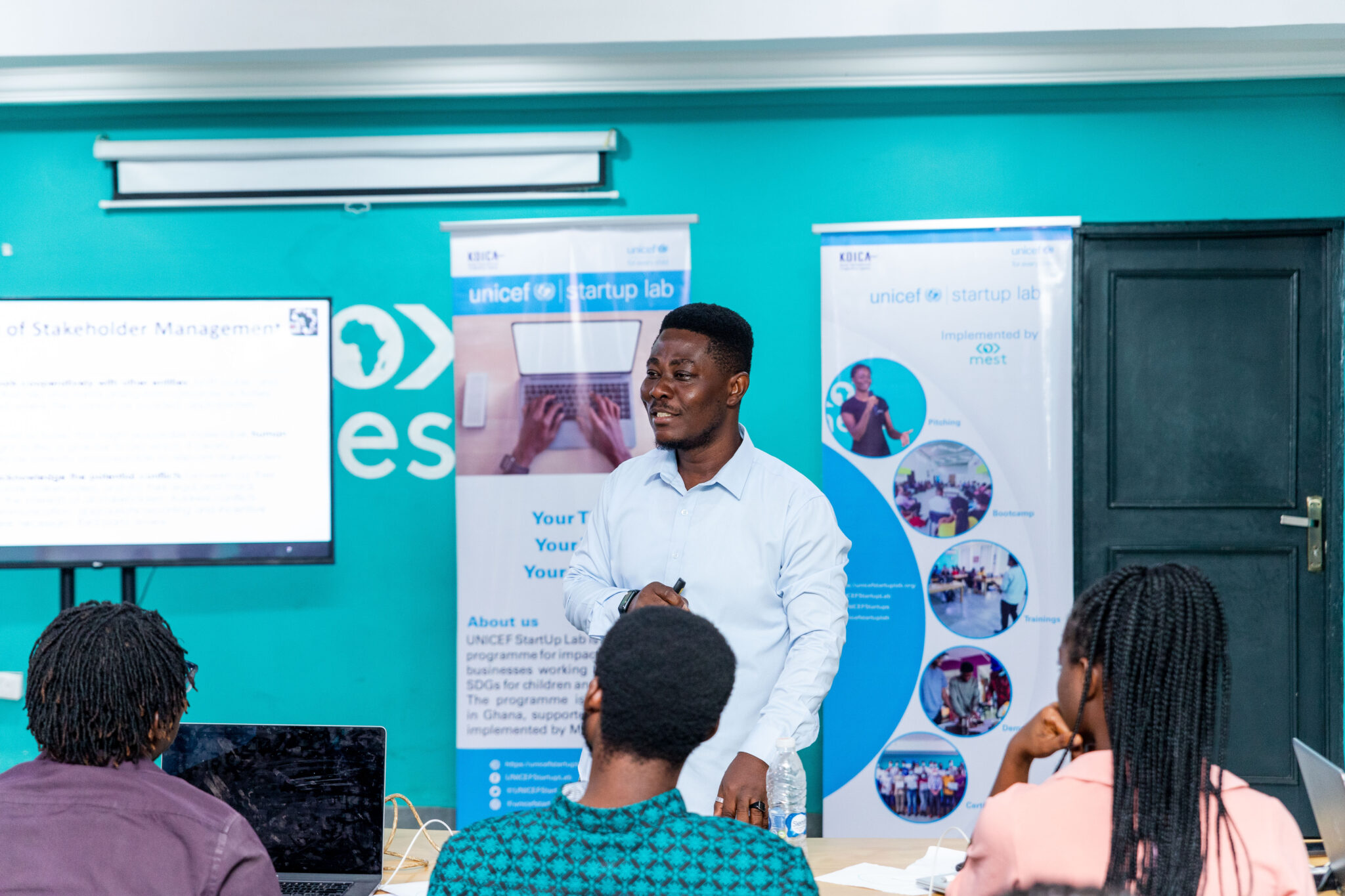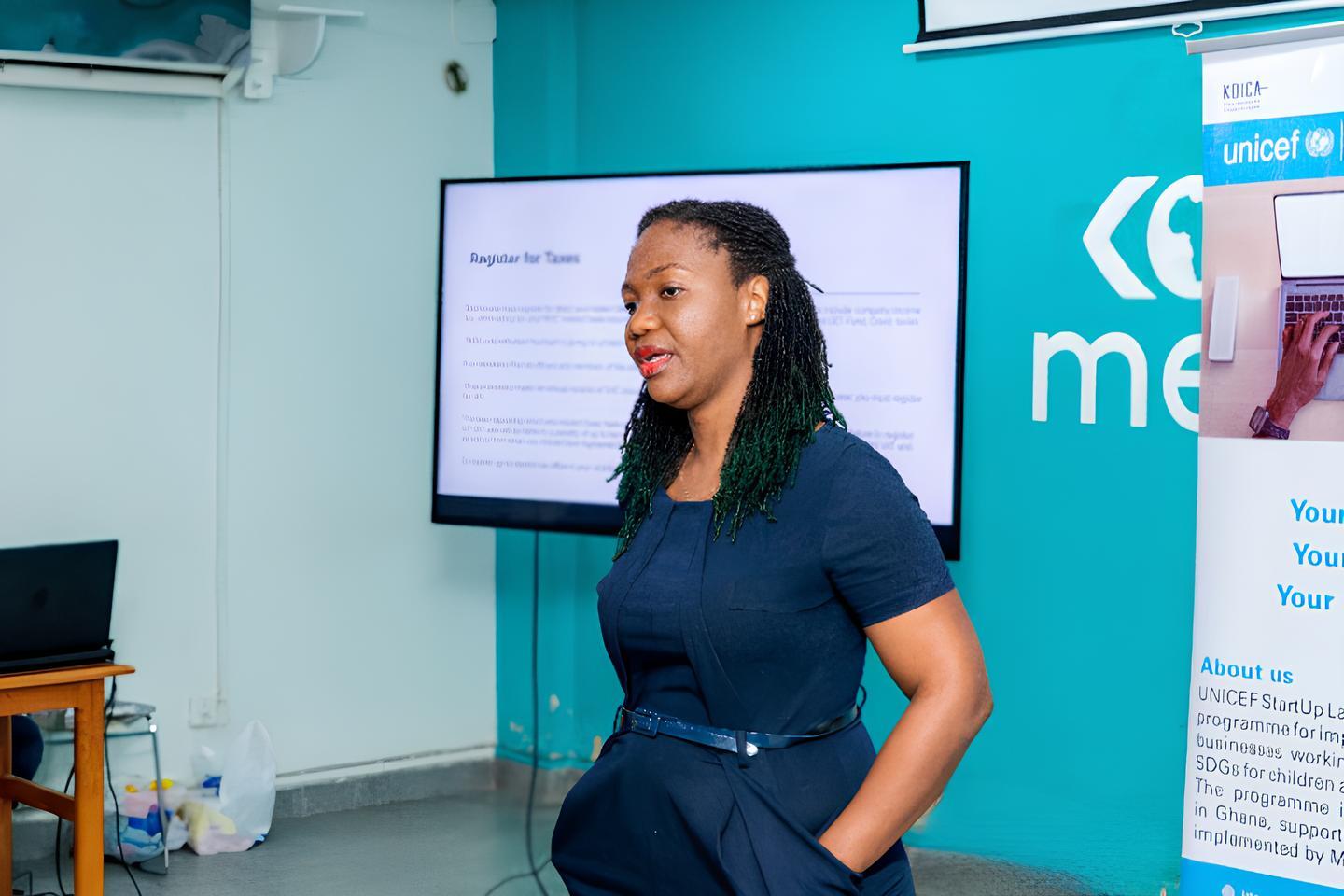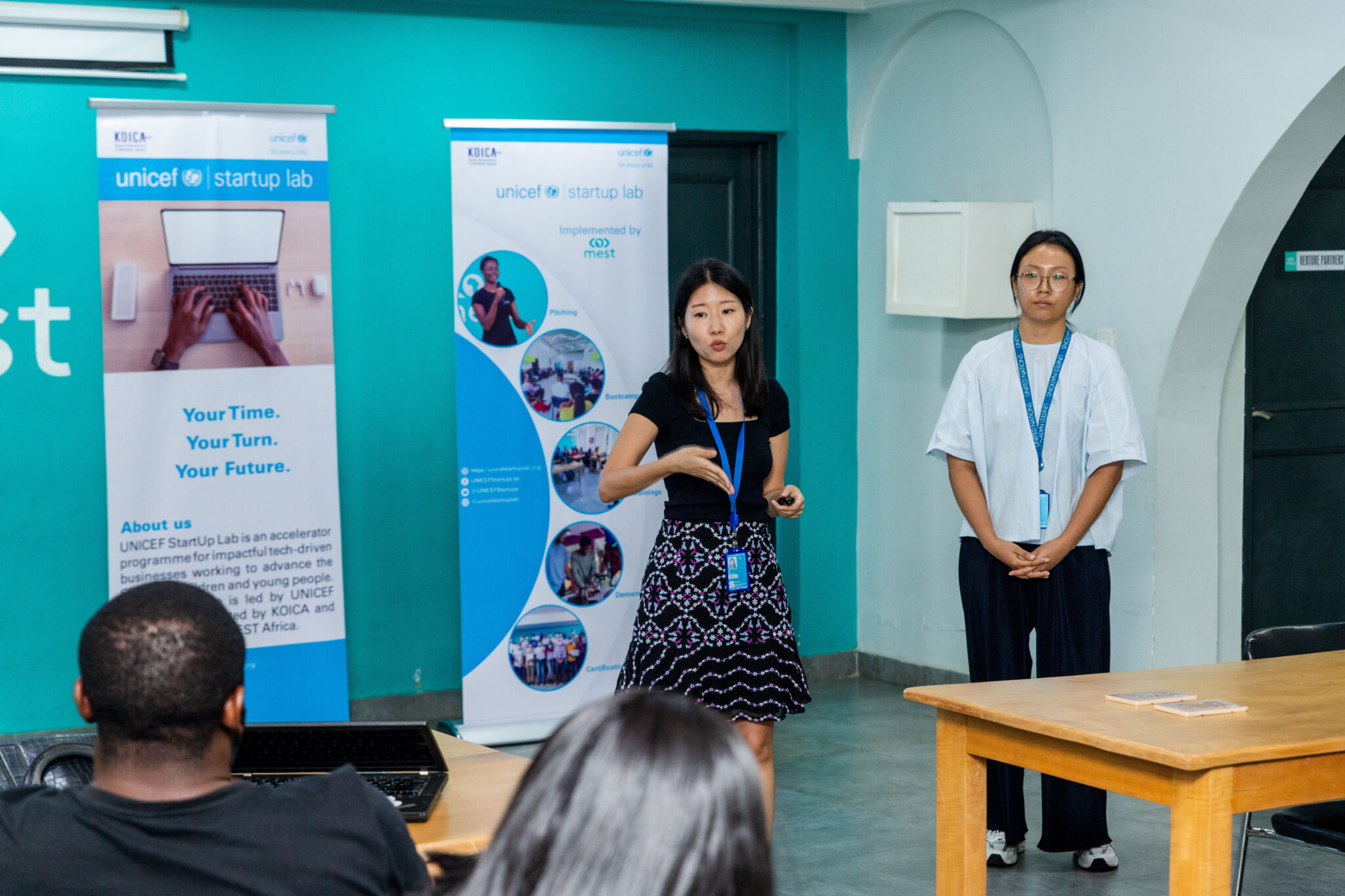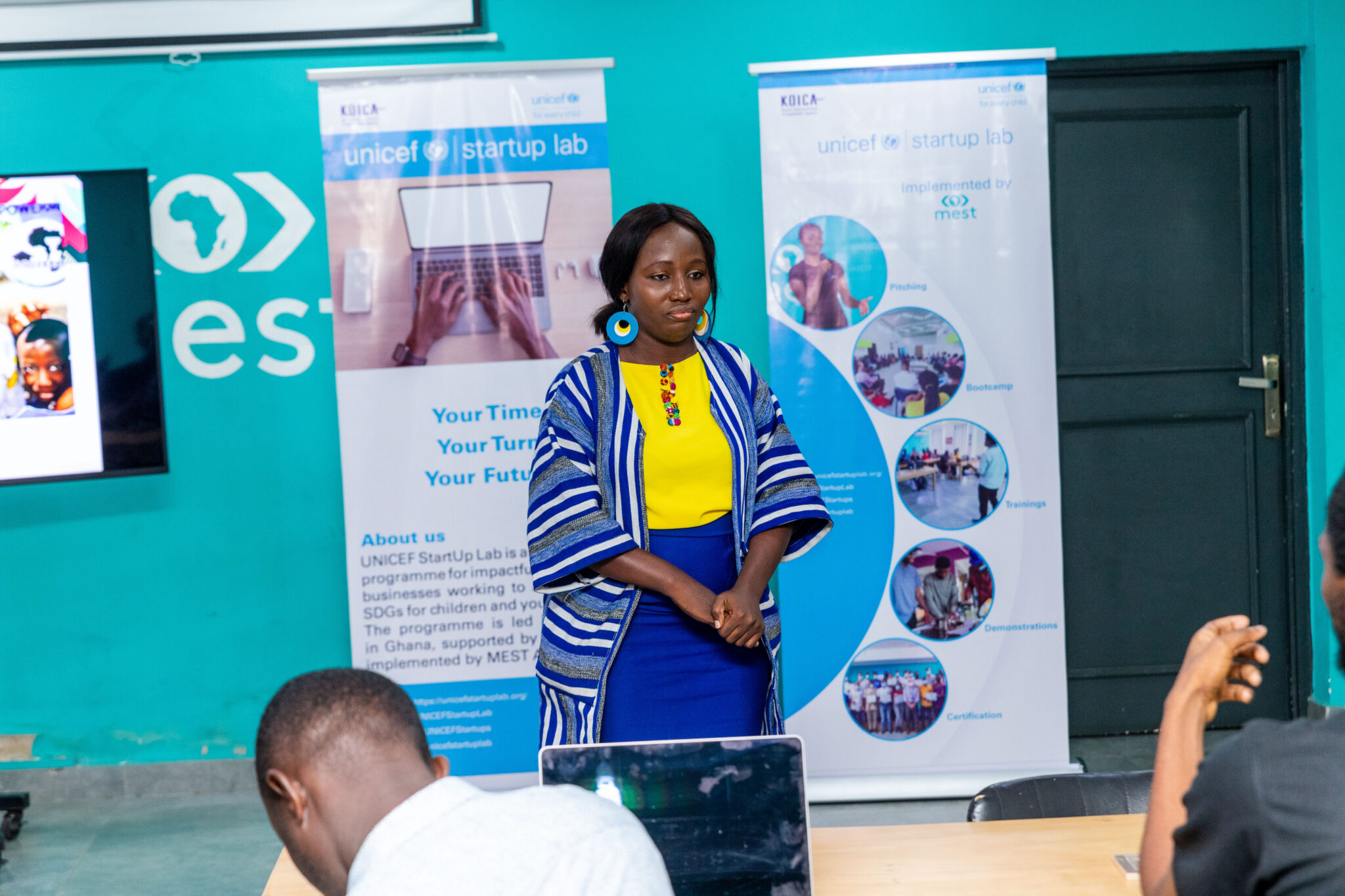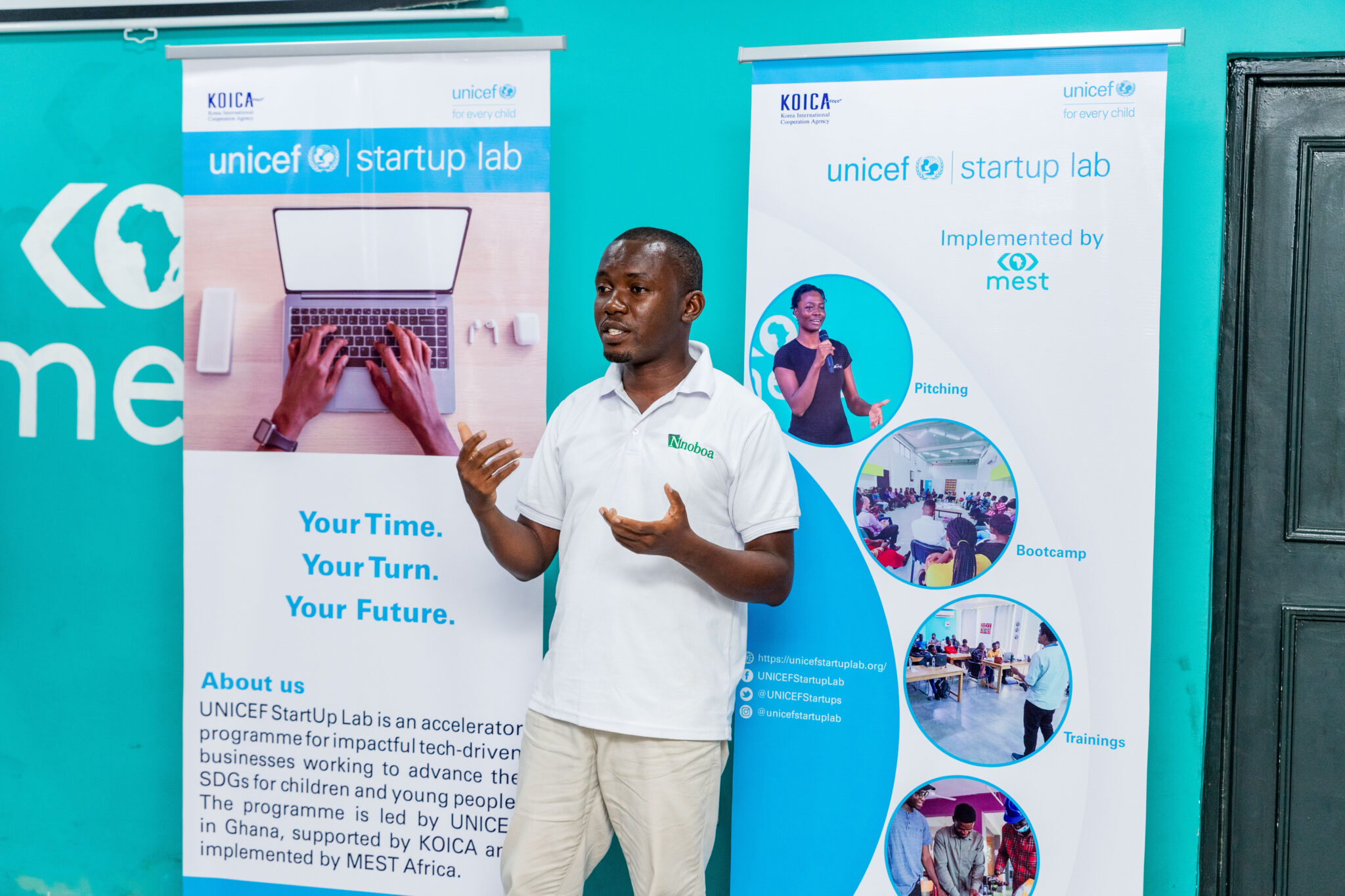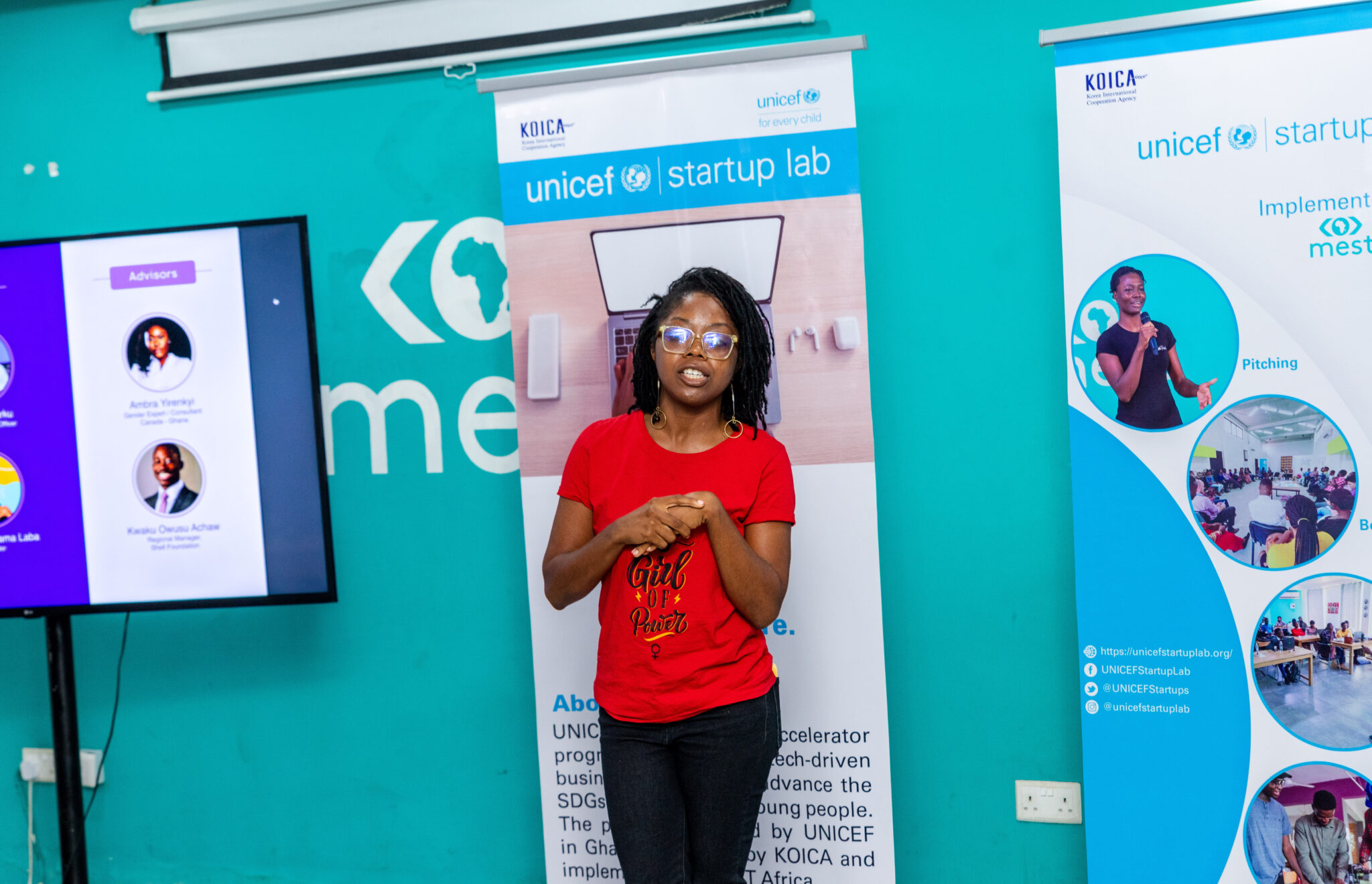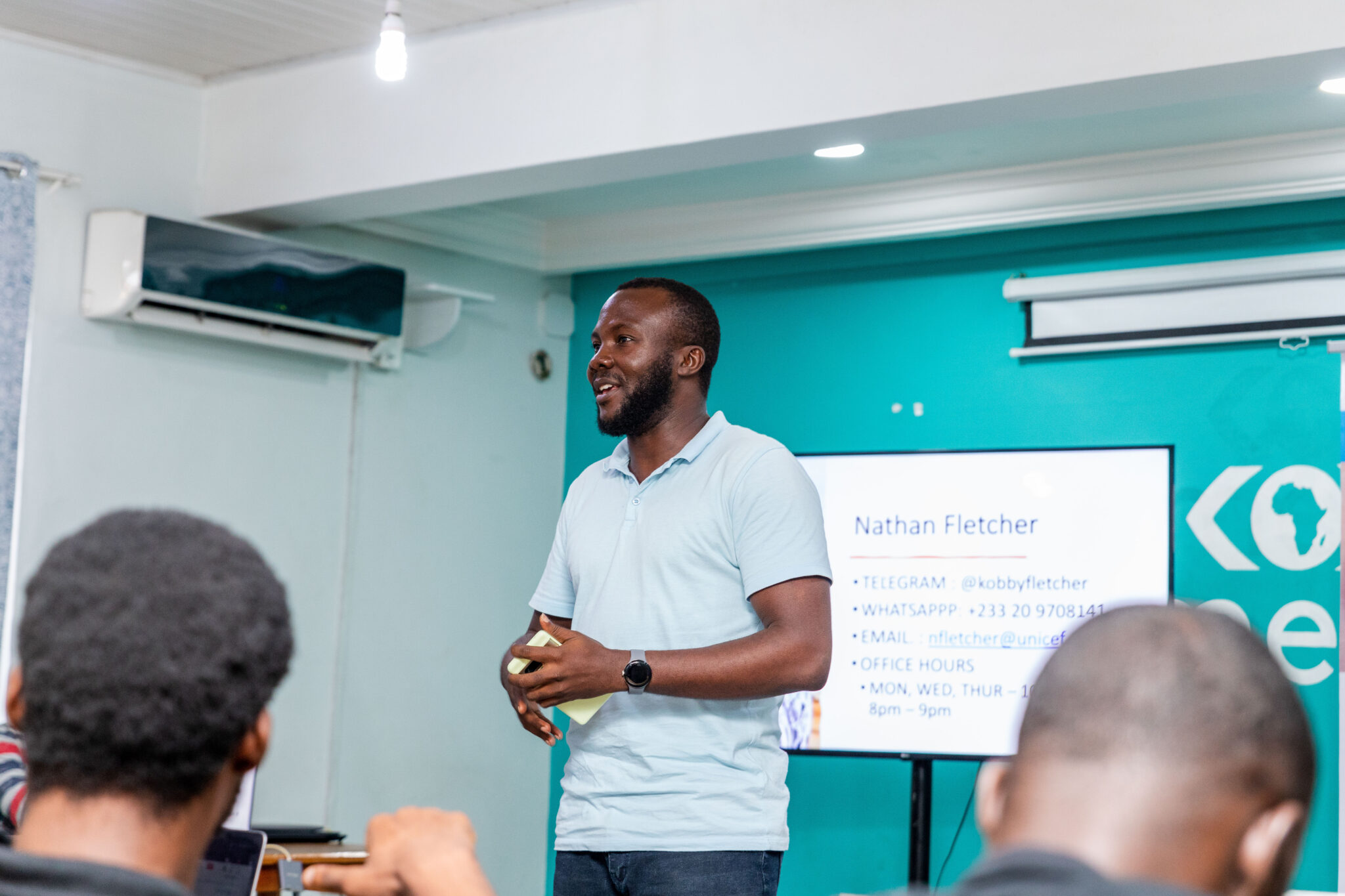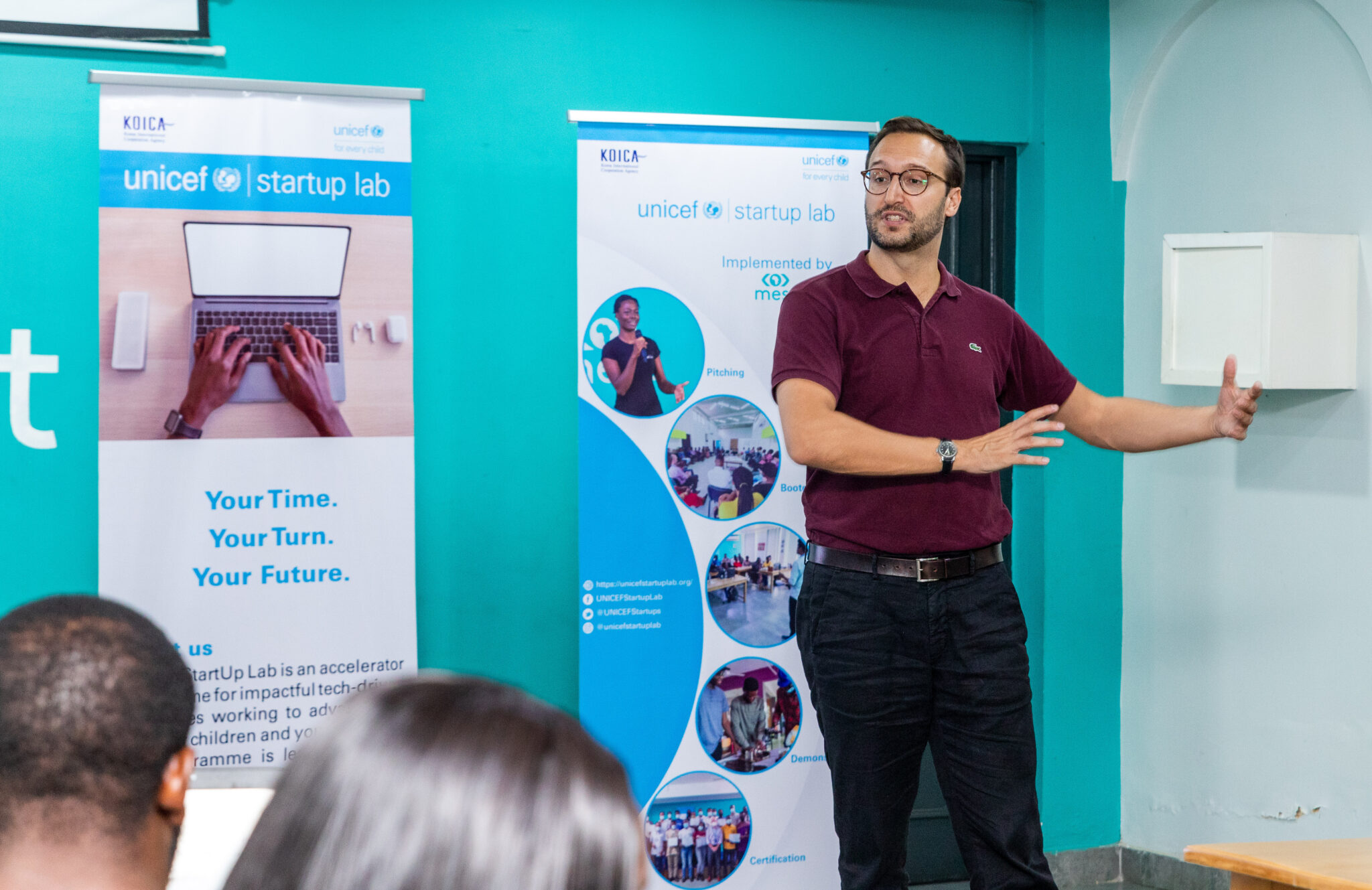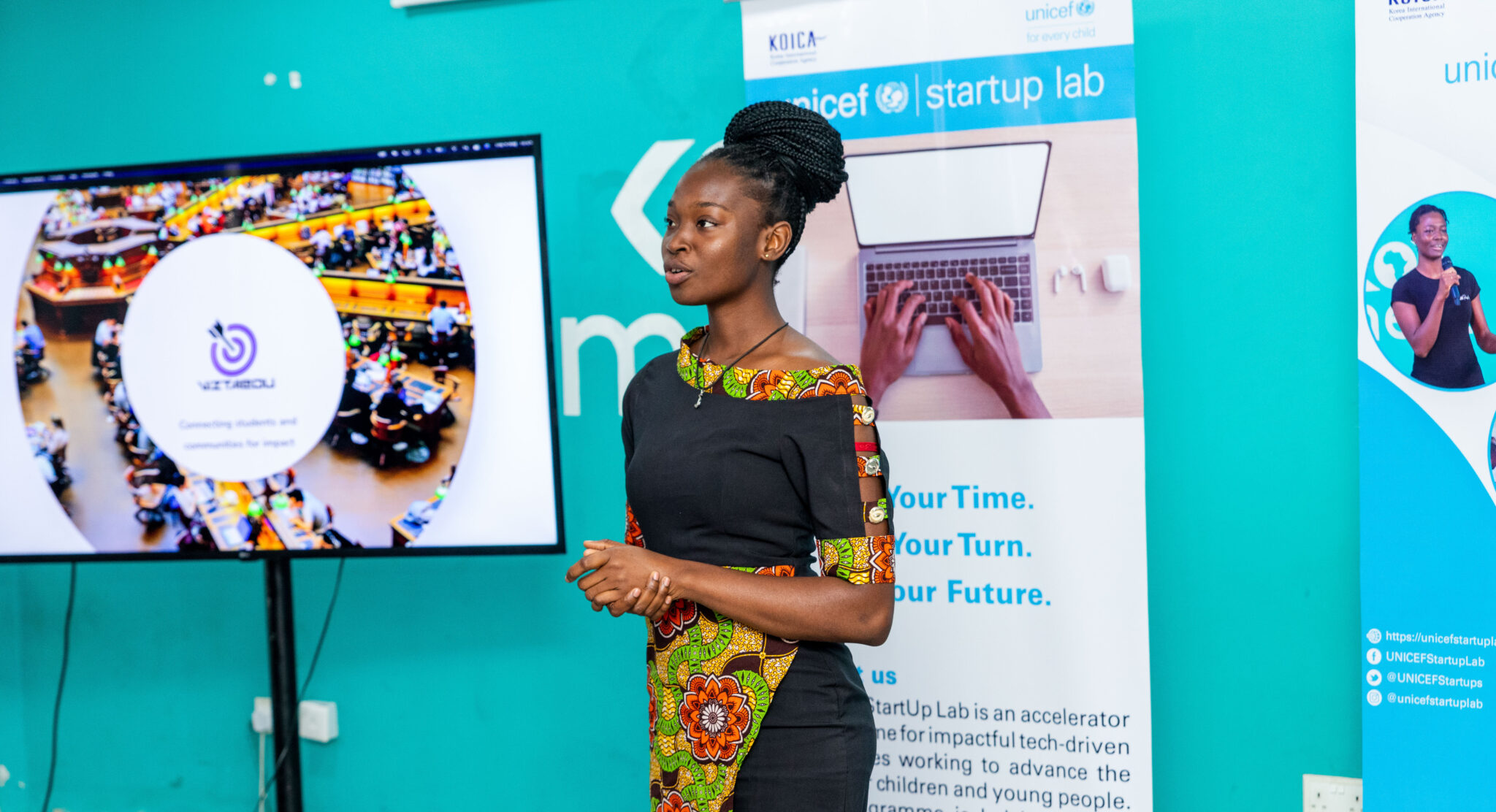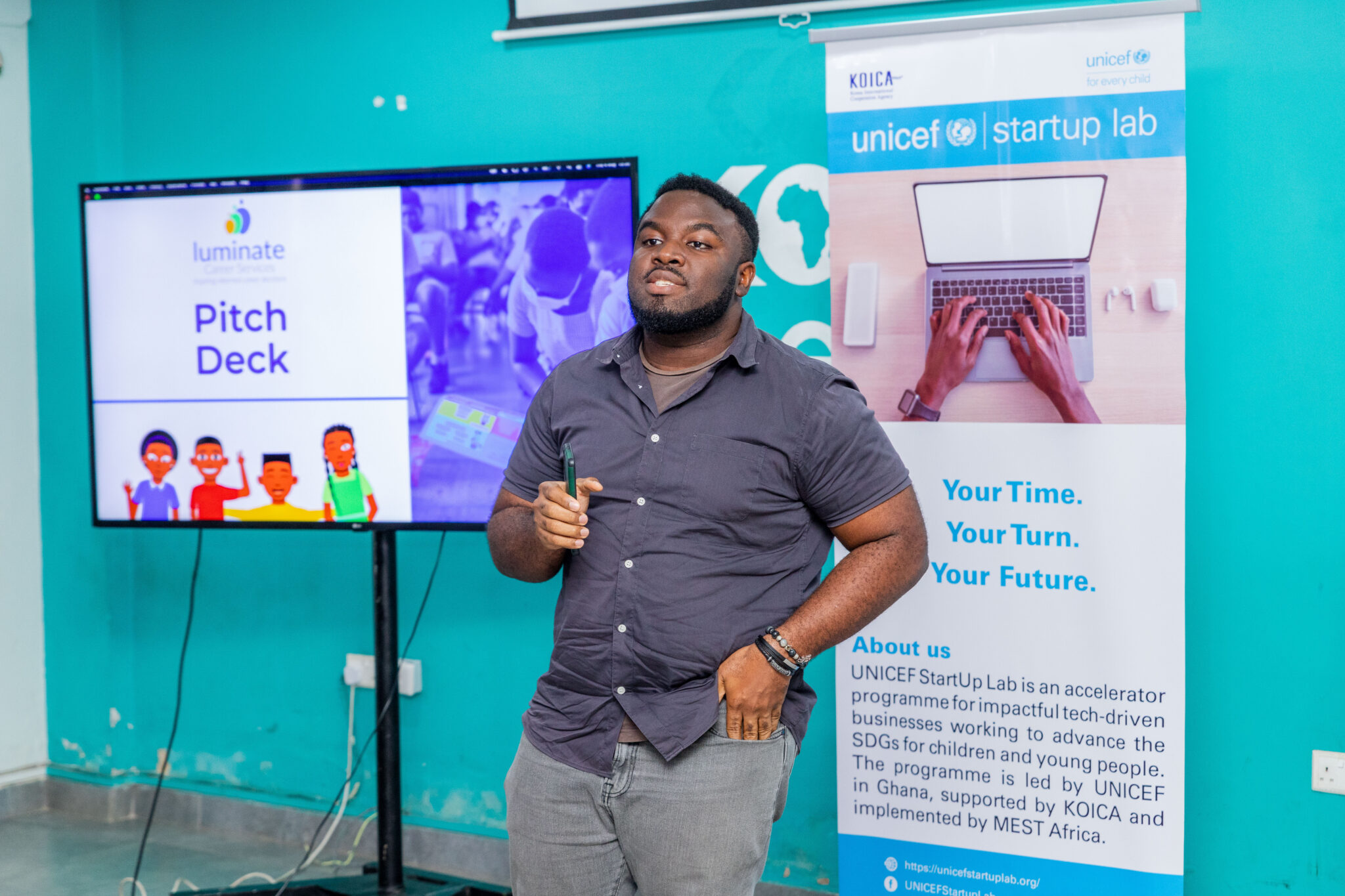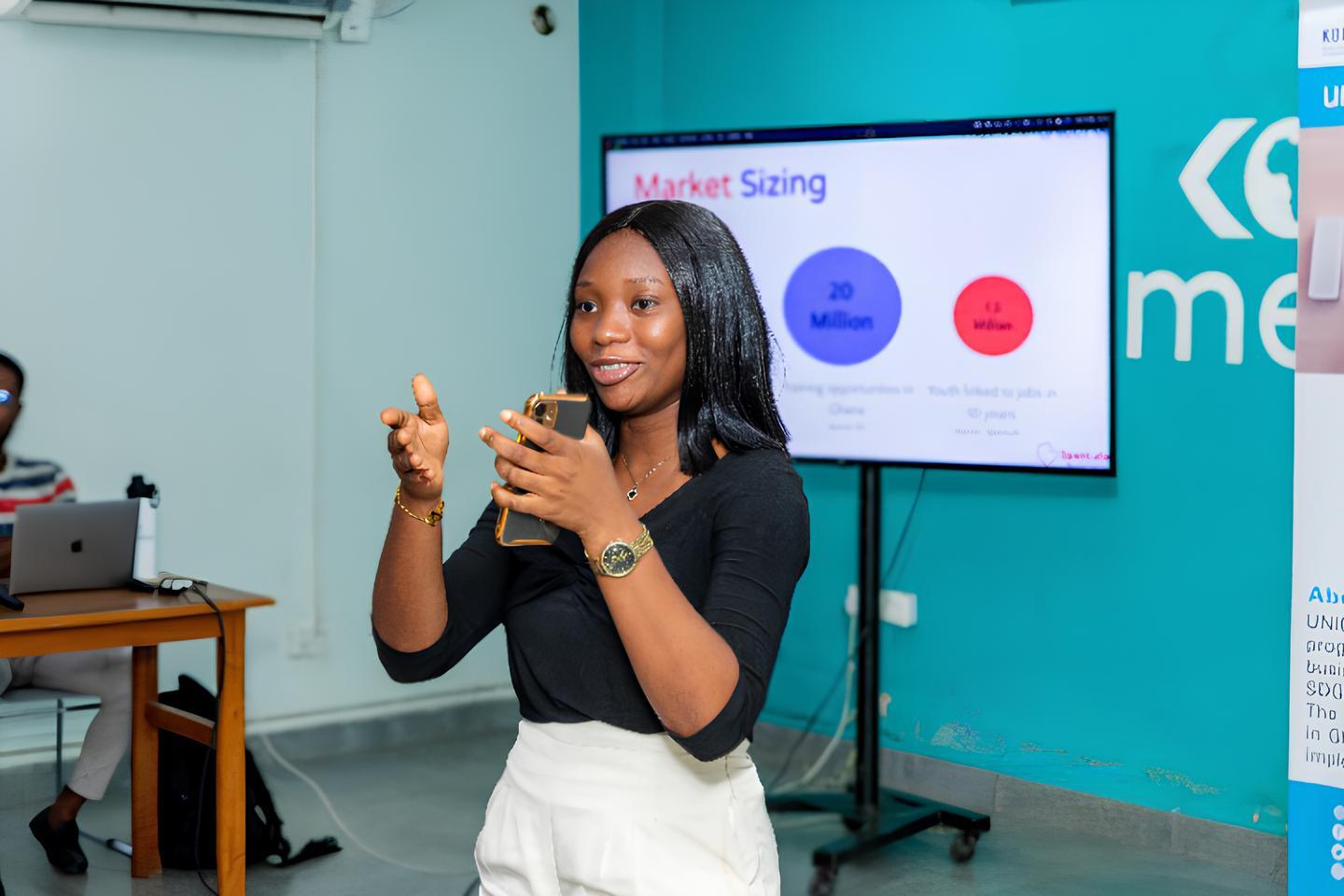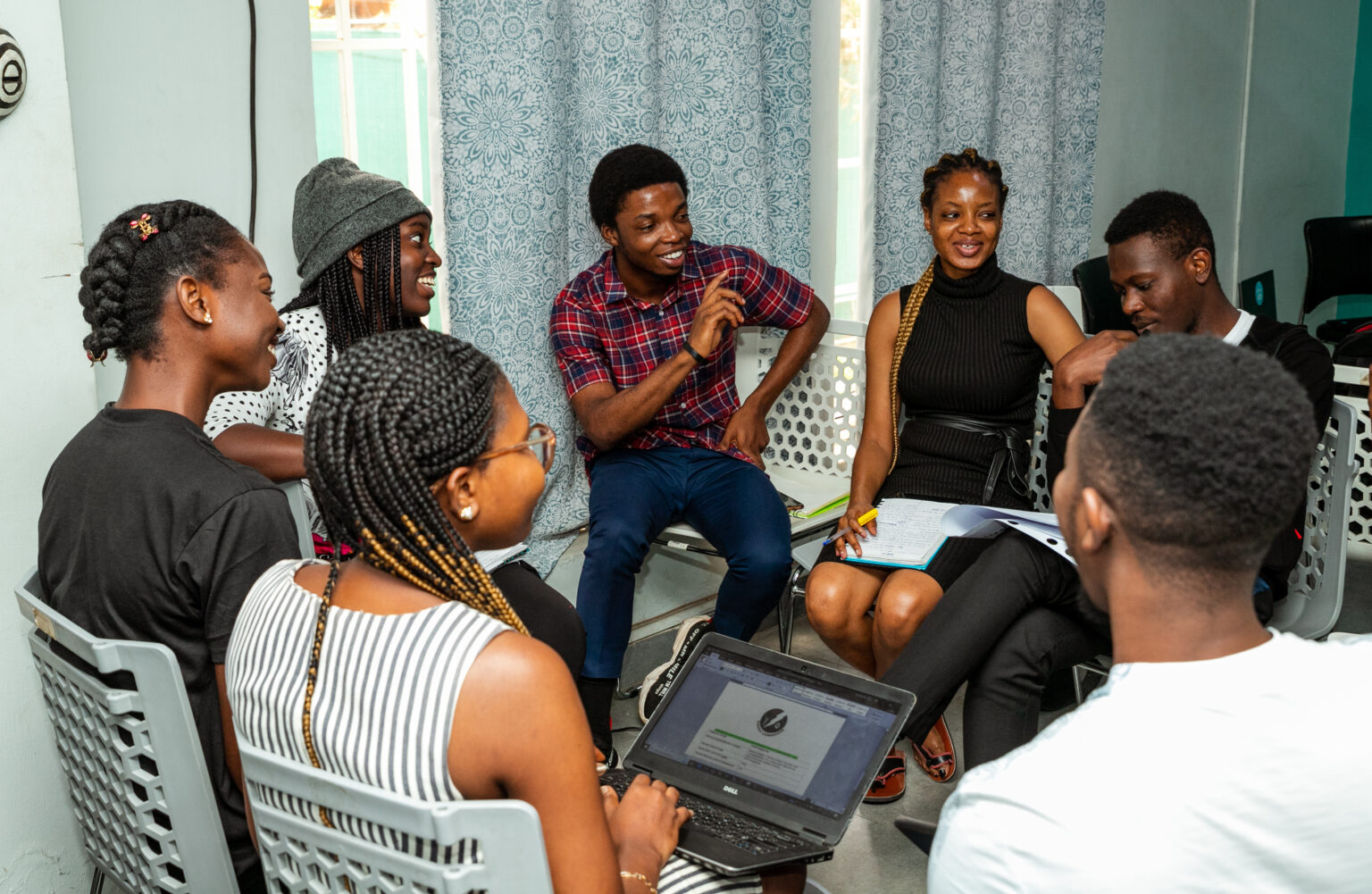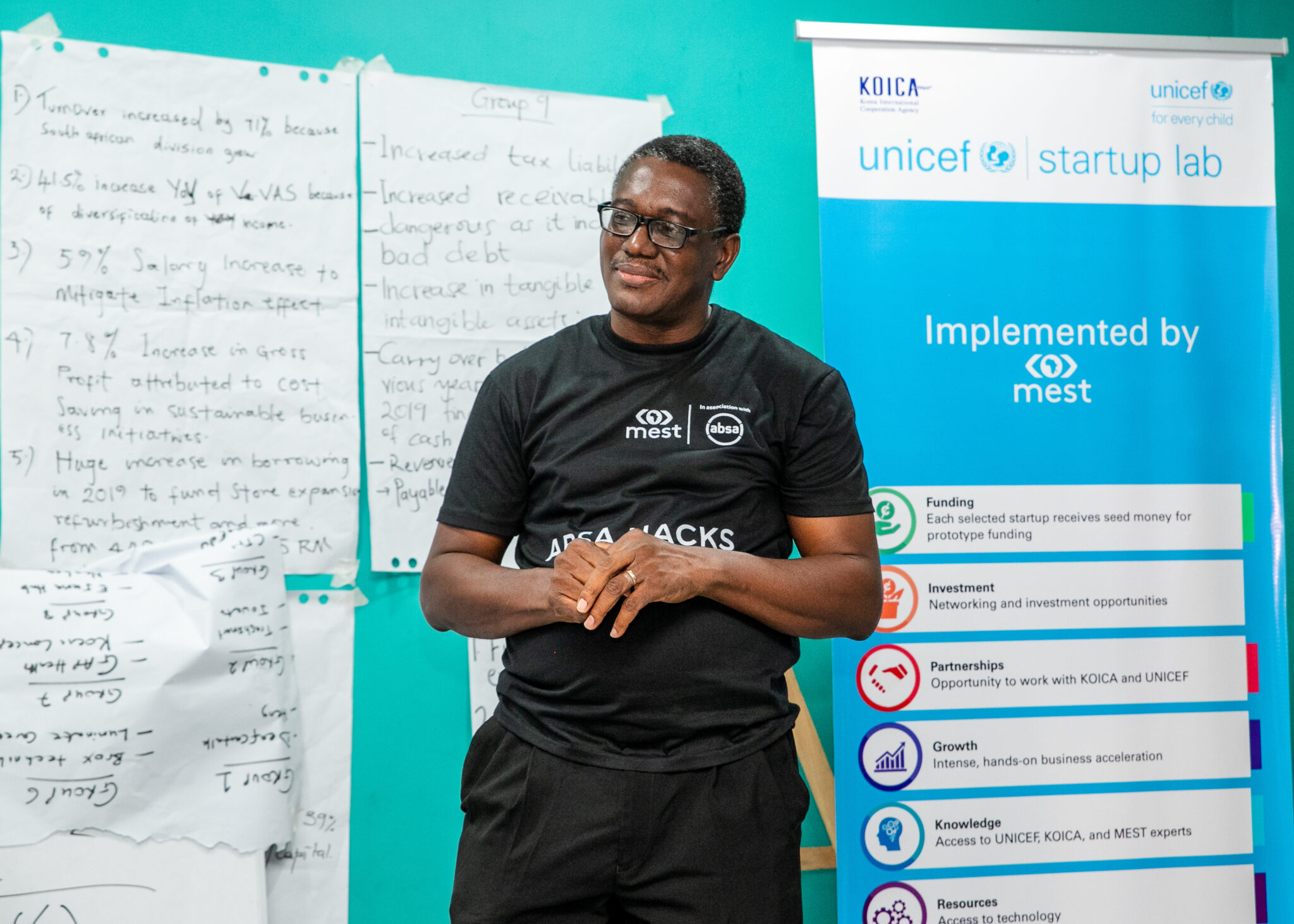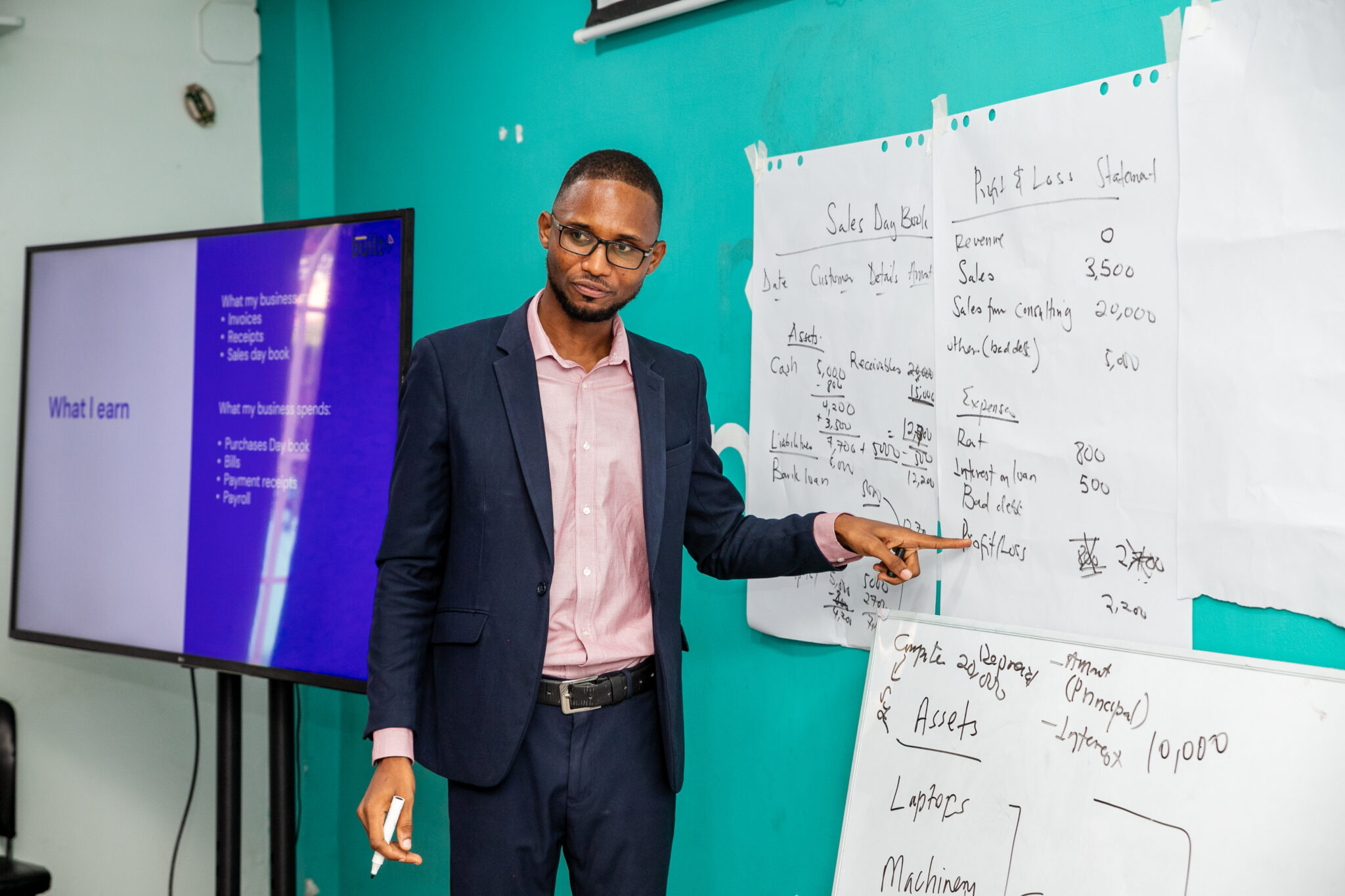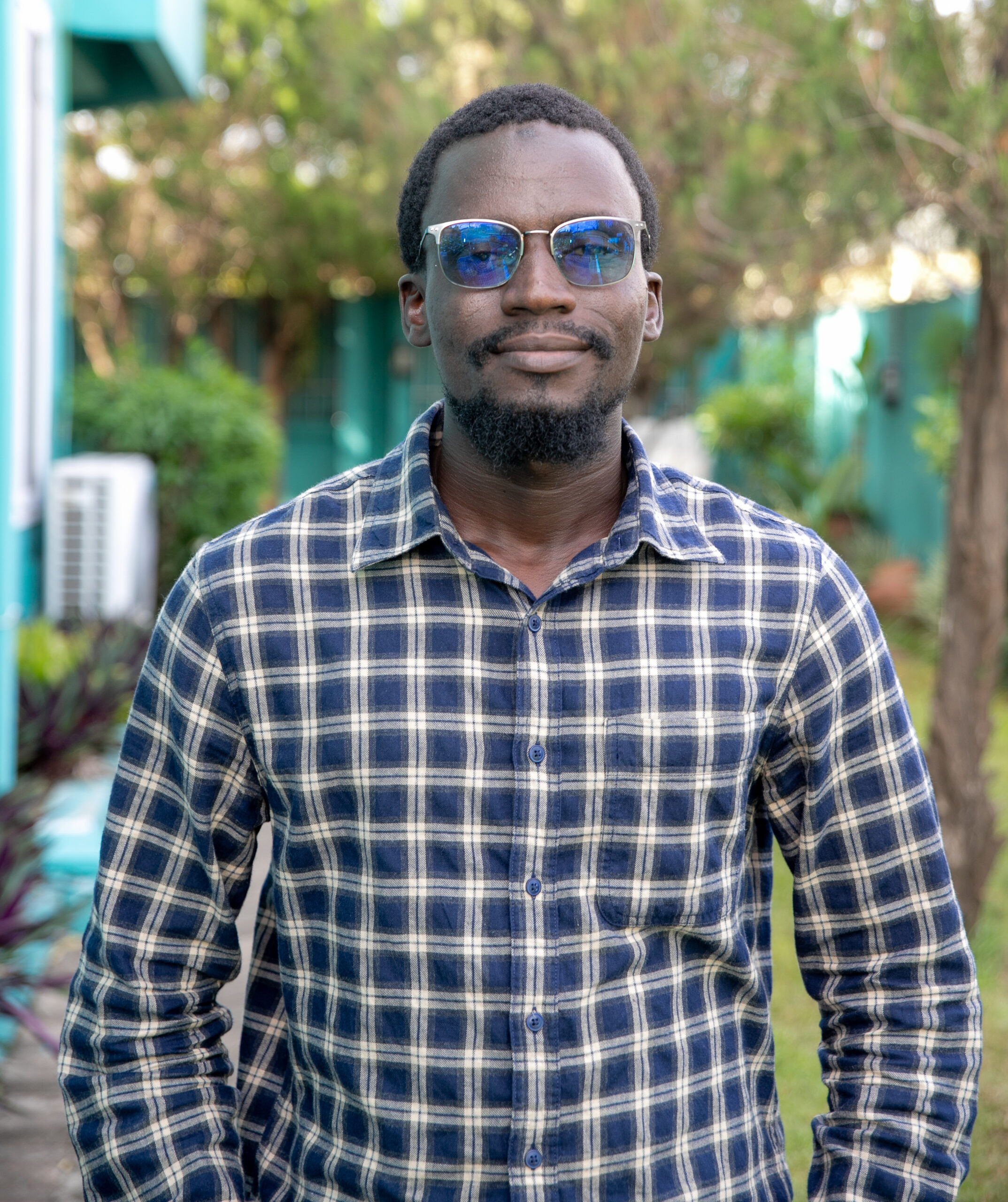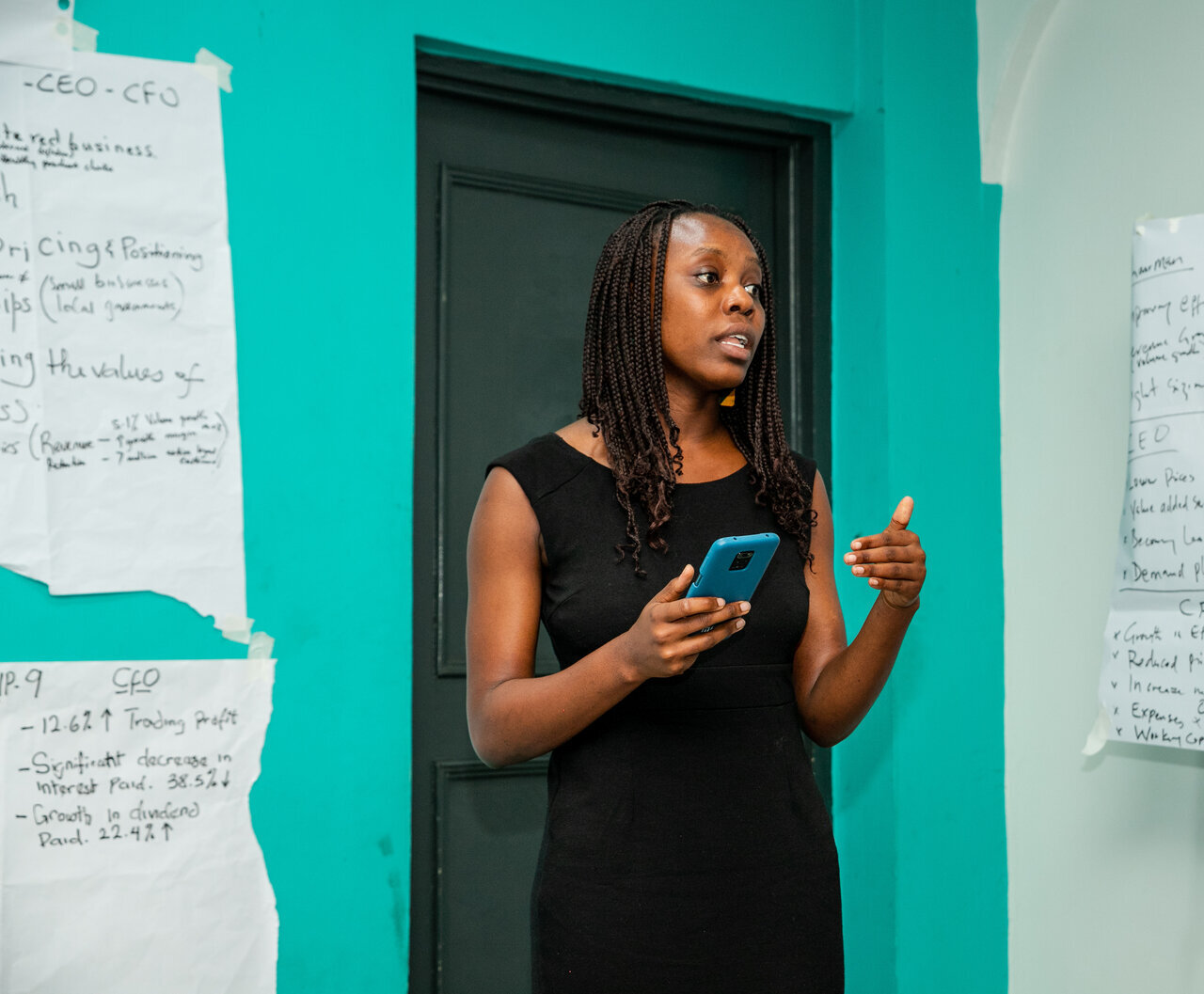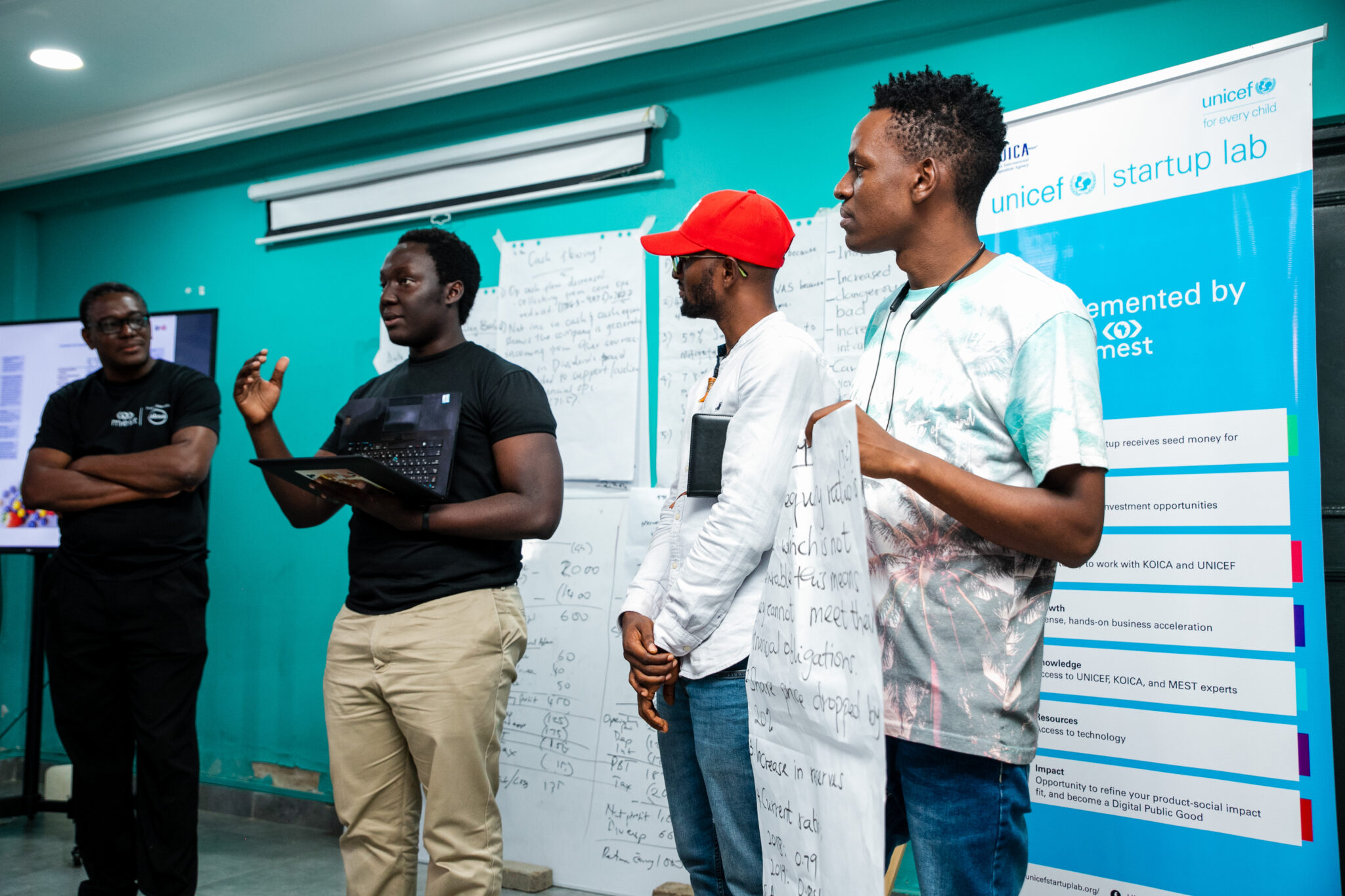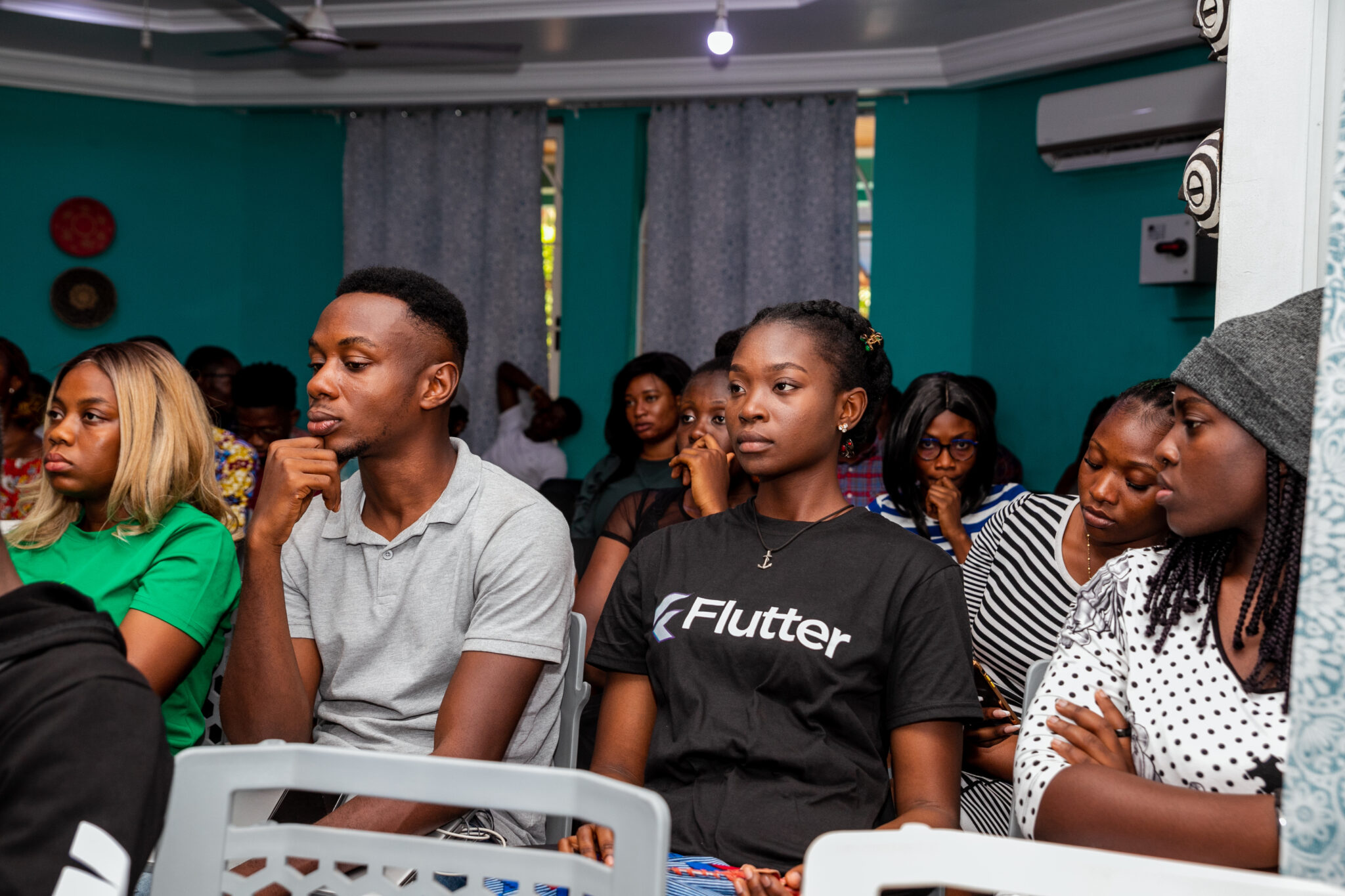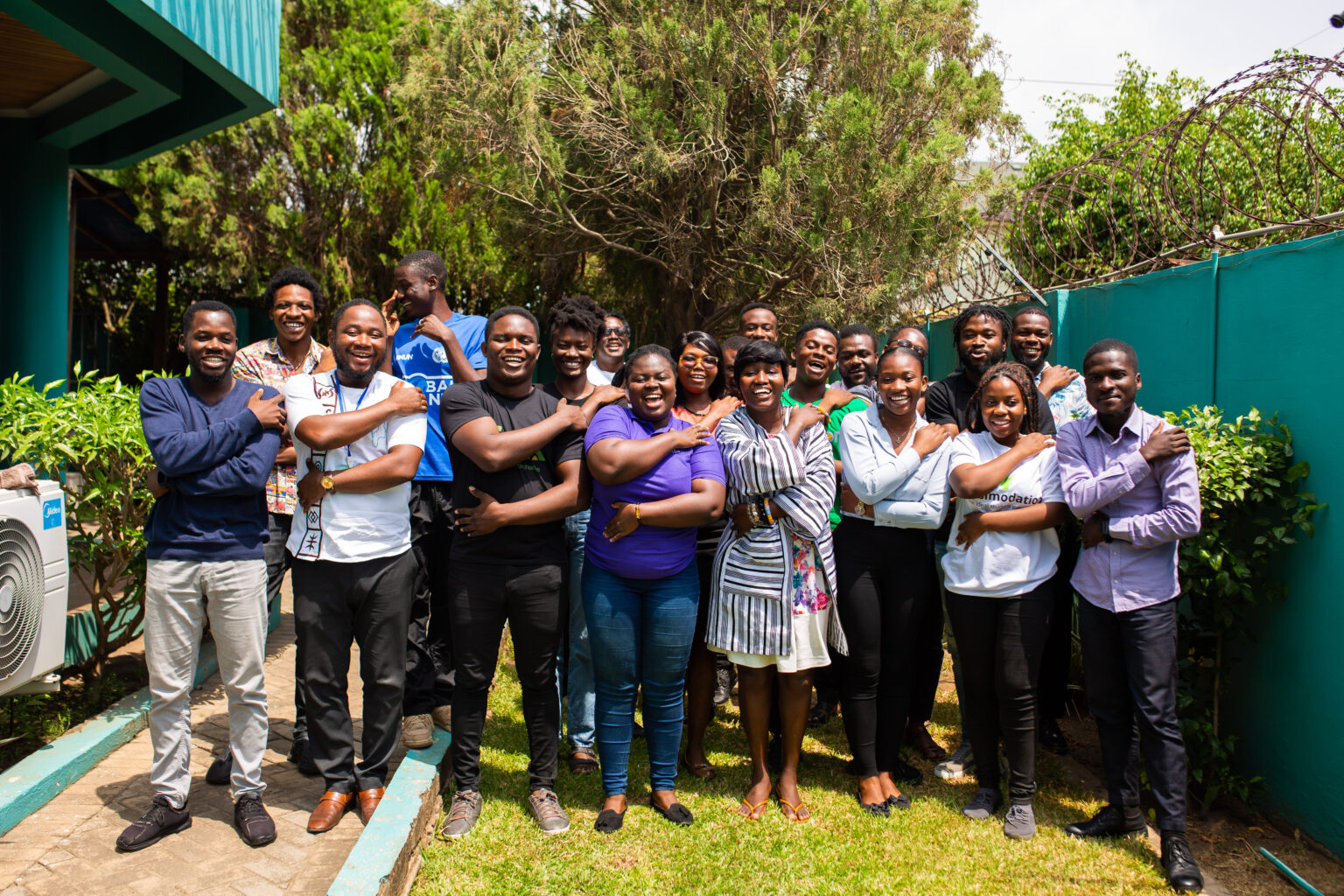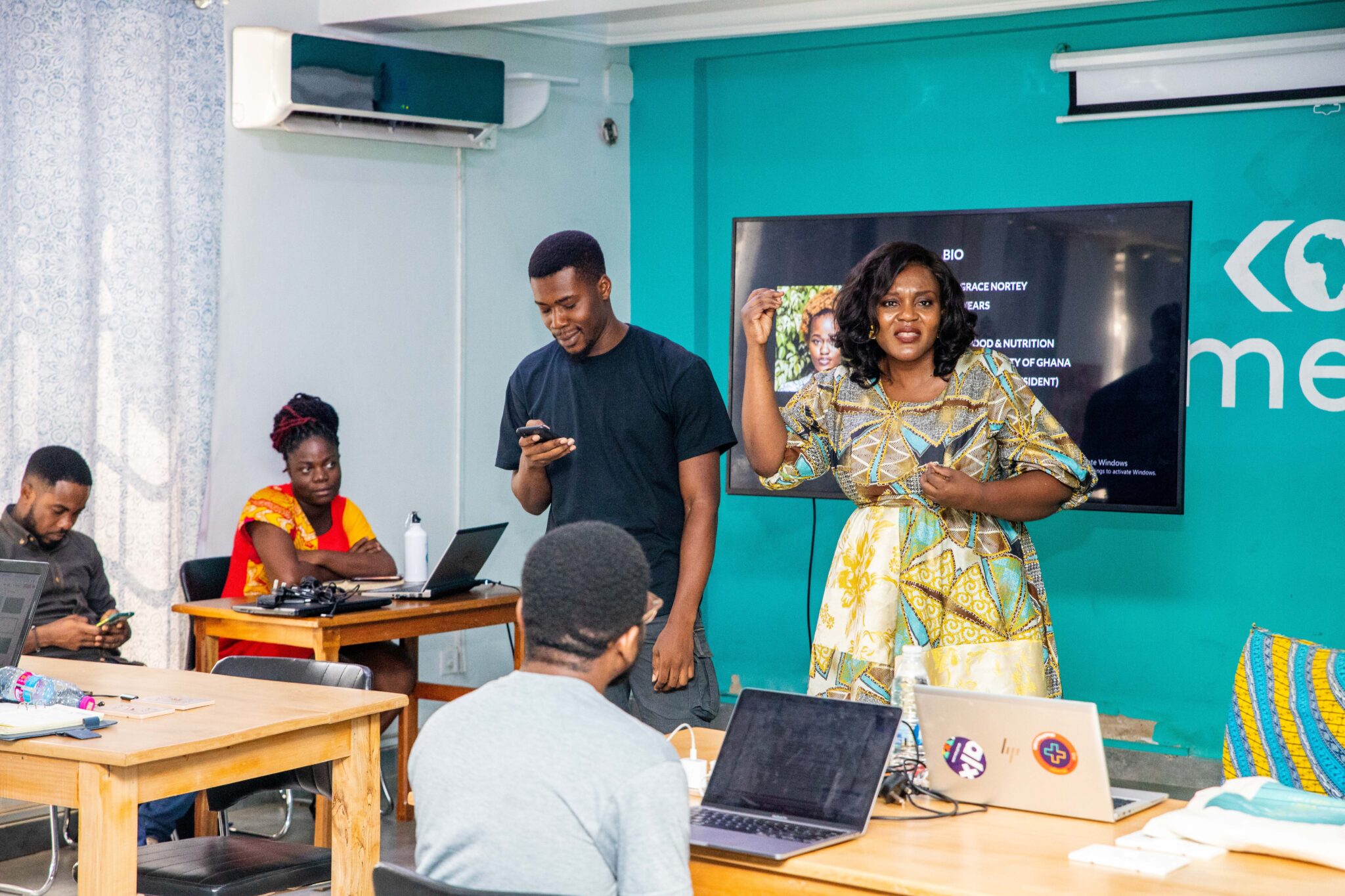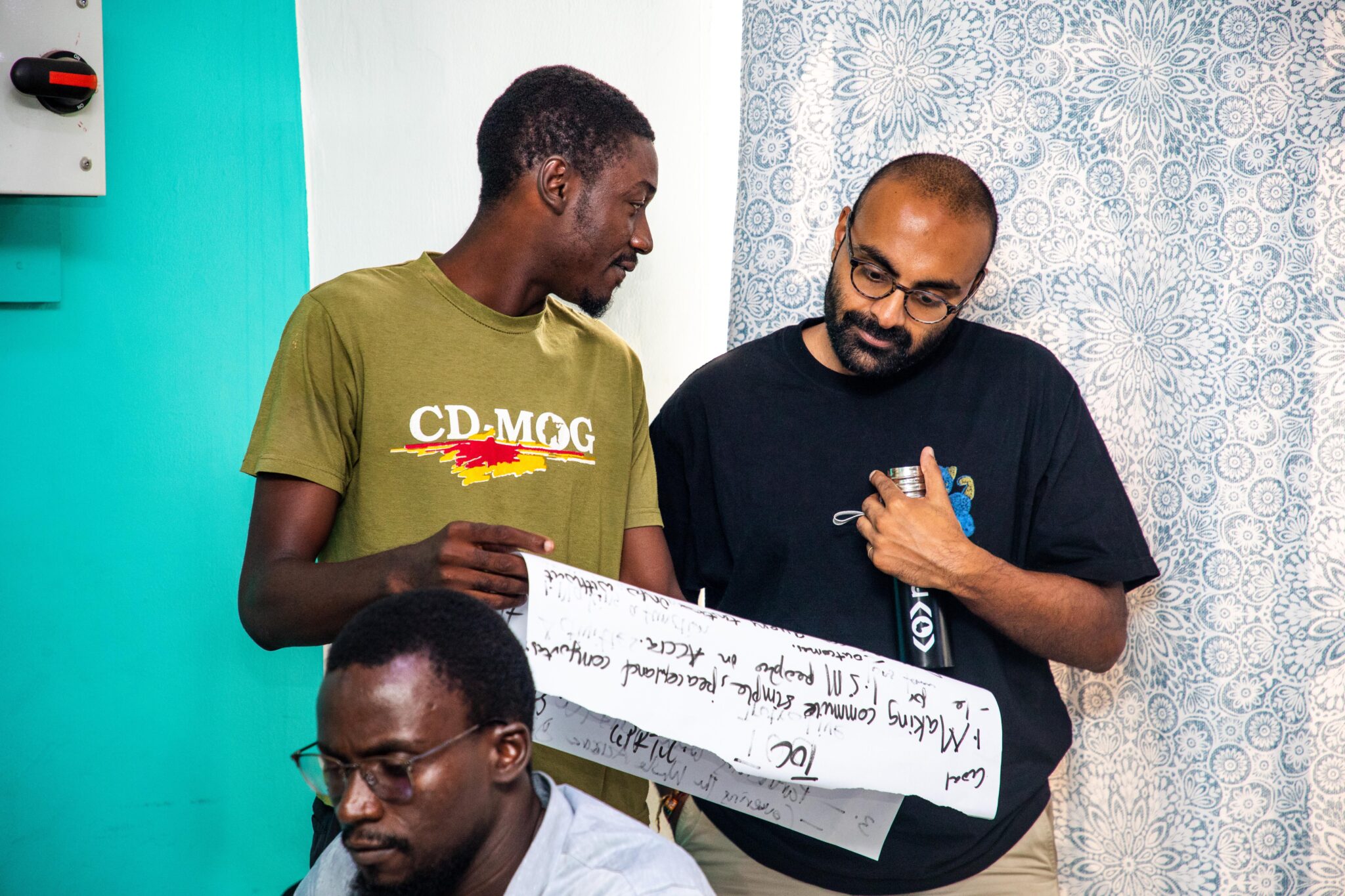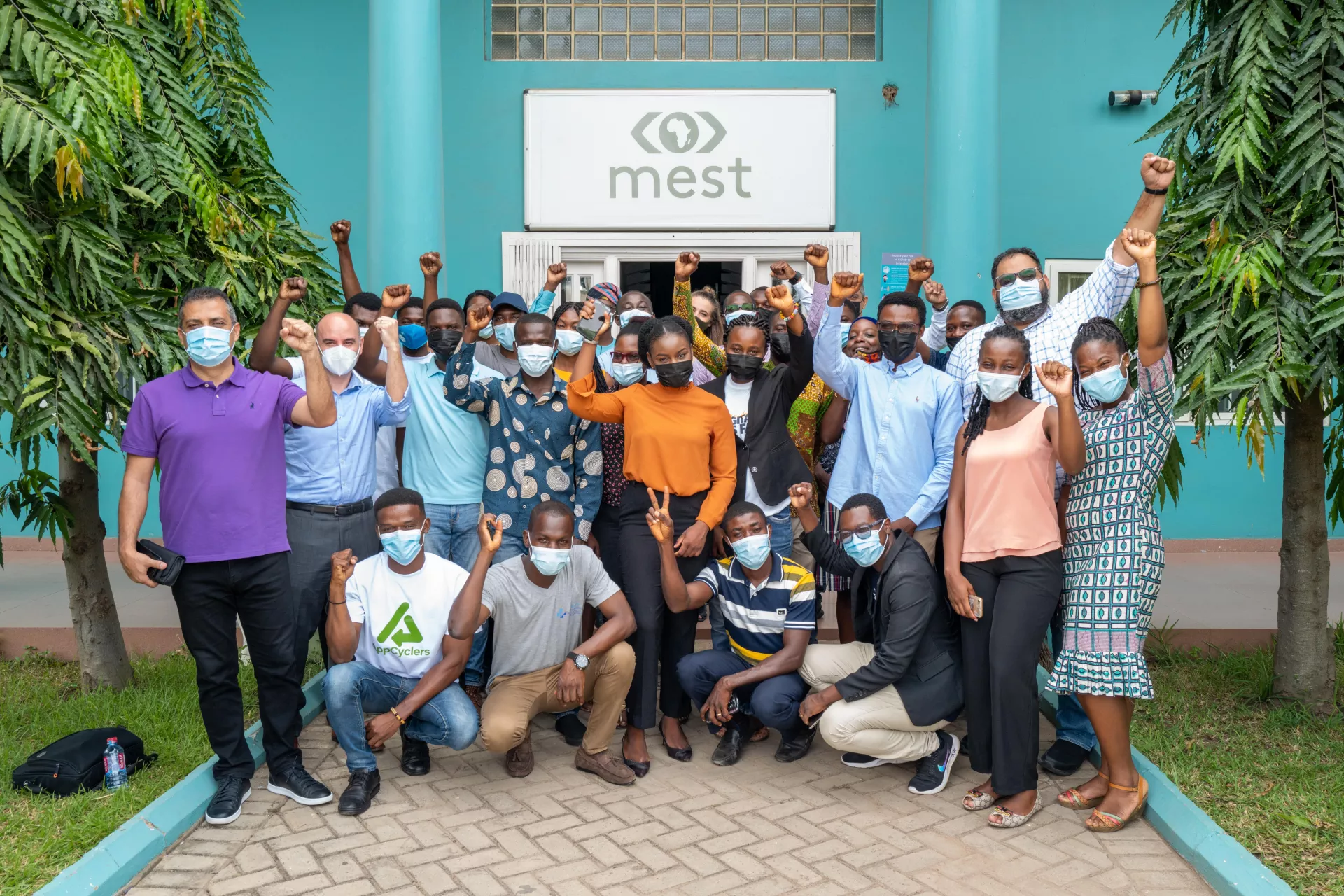
In October 2019, UNICEF and its partners, the African Health Innovation Center (AHIC) and the MeltWater Entrepreneurial School of Technology (MEST) welcomed thirteen young entrepreneurs who make up the first cohort of the UNICEF Startup Laboratory.
The UNICEF Startup Lab is a co-creation space and incubator located at UNICEF’s offices in Accra-Ghana. It aims to actively engage young startups in the development of innovative, open-source, market-driven products and solutions that help address complex problems impacting the well-being of children and young people, especially the most vulnerable.
The Lab provides a platform for co-creation by bringing together partnerships from within the startup ecosystem in Ghana (including among civil society, academia and the private sector) to identify and enable the next generation of impact-focused businesses.
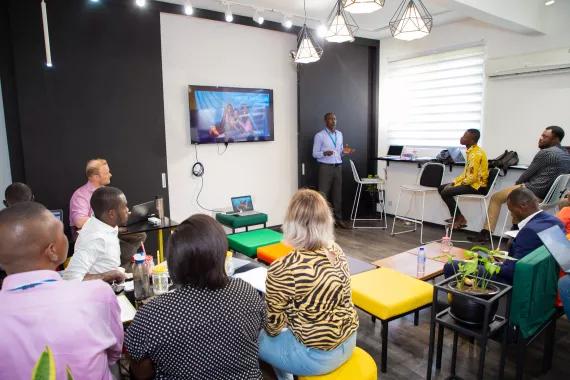 One entrepreneur from each startup will benefit from a six-month entrepreneurship programme, including curriculum delivery, soft-skills development and mentorship. The UNICEF Startup Lab will also provide opportunities for the wider engagement and empowerment of young people, especially girls, in employability skills development and active citizenship. This will include regular events such as hackathons, master classes, and resident seminars.
One entrepreneur from each startup will benefit from a six-month entrepreneurship programme, including curriculum delivery, soft-skills development and mentorship. The UNICEF Startup Lab will also provide opportunities for the wider engagement and empowerment of young people, especially girls, in employability skills development and active citizenship. This will include regular events such as hackathons, master classes, and resident seminars.
UNICEF received over eighty-five applications in the first round, out of which thirteen were selected. The thirteen entrepreneurs have started businesses that propose solutions to address issues in agriculture, health and nutrition, water, sanitation and hygiene, education and social accountability. The cohort will have the opportunity to work on-site with UNICEF programme specialists to gain valuable market knowledge, prototype their products, and test solutions on the ground.
The startups will also gain access to international and national investment opportunities, including possible support from the UNICEF Innovation Fund.
The UNICEF Startup Laboratory is an initiative that supports the Generation Unlimited agenda – to prepare young people to become productive and engaged citizens.
Through Generation Unlimited, UNICEF and partners are connecting secondary and tertiary education and training to employment and entrepreneurship and empowering every young person to thrive in the world of work.
To learn more about the UNICEF Startup Laboratory, visit https://unicefstartuplab.org/
To learn more about Generation Unlimited, visit https://www.generationunlimited.org/
To learn more about the UNICEF Innovation Fund, visit https://www.unicef.org/innovation/venturefund
On 10 June, 11 young entrepreneurs enrolled at the UNICEF Startup Lab shared how their tech-based solutions are impacting the lives of children, young people and their communities positively.
Interested in finding out what these innovative solutions are? Find out more below
Action against Corruption and Bureaucratic Inefficiency (ACBI) focuses on the use of technology to generate data and centralizing citizens in the fight against corruption. The scope of his StartUp has expanded into leveraging the same model to improve social accountability and improving citizen participation in governance.
Fiifi is currently working directly with adolescent girls to co-create a solution called Kittycara, a period tracking app integrated with an AI chatbot that delivers real-time, safe and accurate information on Menstrual Hygiene Management (MHM), Sexual and Reproductive Health and Rights (SRHR) and puberty advice by answering user questions and providing short, animated videos.
Akosua is a software engineer and graduate of the UNICEF Startup Lab who is passionate about the role women play in the digital world. Her startup MEDOC, is a web and mobile app platform that connects patients to professional medical practitioners and counsellors with a special focus on the health needs of women (especially pregnant women) and children.
Hillary Widanama Adare is a geomatic engineer and founder of the agribusiness, Wonfliki, focused on providing inputs and solutions on farms mainly through the use of drones. She is also a graduate of the first cohort of the UNICEF Startup Lab.
By intersecting engineering and agriculture, Wonfliki stands as a brand that assesses spatial information of lands to provide seamless effort on farms for farmers, aggregators and agri-financial institutions. They are dedicated to providing a service of high technical quality thanks to a multidisciplinary team who help fill in data gaps needed in crop metrics and monitoring, through constant innovation and development.
Emmanuel is a visionary techpreneur on the mission of using technology to solve the issue of poor sanitation in Africa. He currently runs BD Waste, which is a cleantech StartUp that connects waste generators, aggregators, and recyclers through a mobile and USSD platform.
Teddy is a healthcare entrepreneur, passionate about artificial intelligence research and digital health. He holds a Bachelor of Science in Management Studies. He is currently leveraging cutting edge technology to solve some of Africa’s most challenging healthcare problems. To achieve this, he has established Aid Dr., a platform that leverages USSD and mobile application services to support medication delivery and telemedicine services to people living with HIV/AIDS (PLWH).
Joshua is an agripreneur with rich experiences in the management of FMCG supply chains, fruit production, plantation management, value addition and business development. As team lead for Coologi, he has a vision to contribute to a sustainable food value chain by leveraging technology and green energy to develop solutions to the problem of post-harvest losses including the development of solar-powered cold storage systems.
Kelvin Ashie is a technology entrepreneur who has experience in multiple sectors such as agribusiness, healthcare and financial services.
Currently, he is a cofounder and Chief Strategy Officer of Health Direct Global in charge of communication, product development and strategy. Health Direct Global provides a multi-sided platform that allows users to have on-demand access to healthcare through a network of health service providers and also a financially inclusive platform that allows users to save and spend towards their healthcare needs.
Benji is a biomedical engineer with four years of clinical engineering practice in both government and private hospitals. He is the founder and CEO of Aleph Engineering, a biomedical engineering company that provides hardware and software products for enhancing healthcare in the African socio-economic context.
He produces mobility devices using eco-friendly, abundant and quality materials to aid in the rehabilitation of children with cerebral palsy and other mobility disorders.
He is also the producer of the Aleph Engineering web application for digitizing healthcare through online bookings of therapists, video consultation with doctors, specialists and therapists, virtual multi-disciplinary team meetings and e-commerce of custom-made/generic rehabilitative devices.


